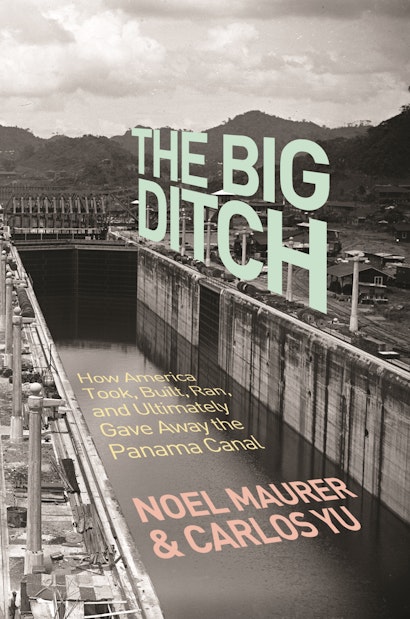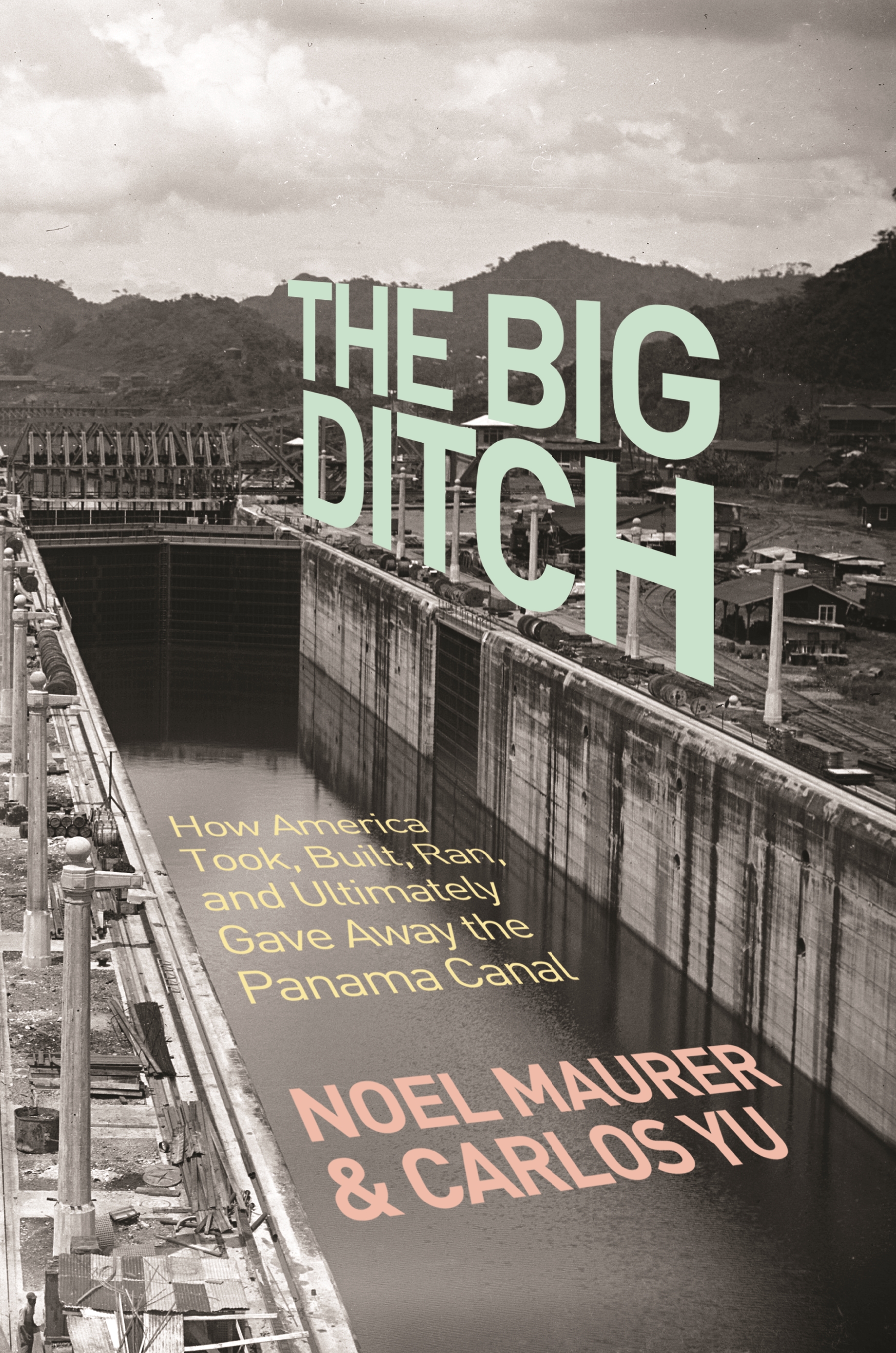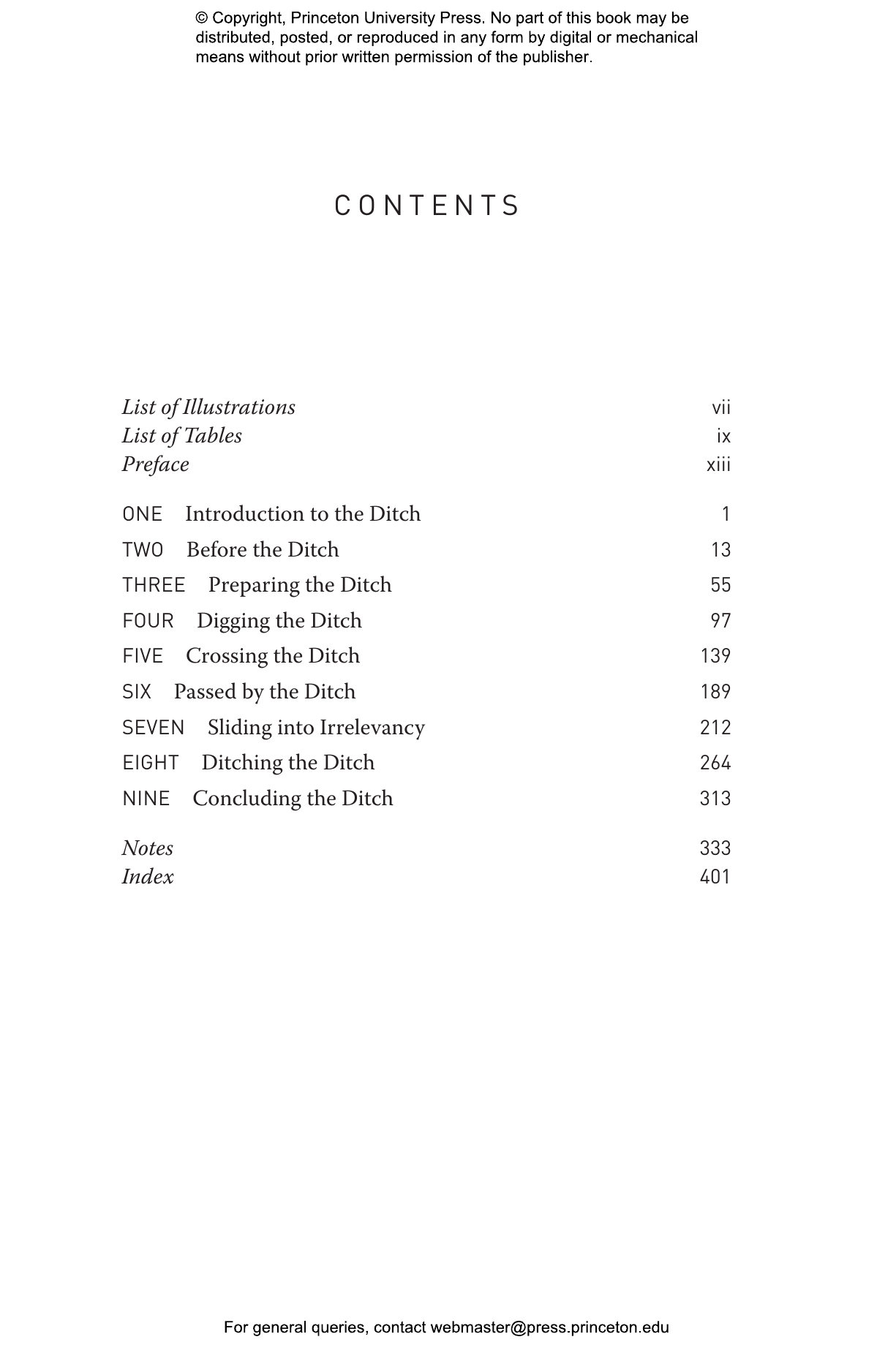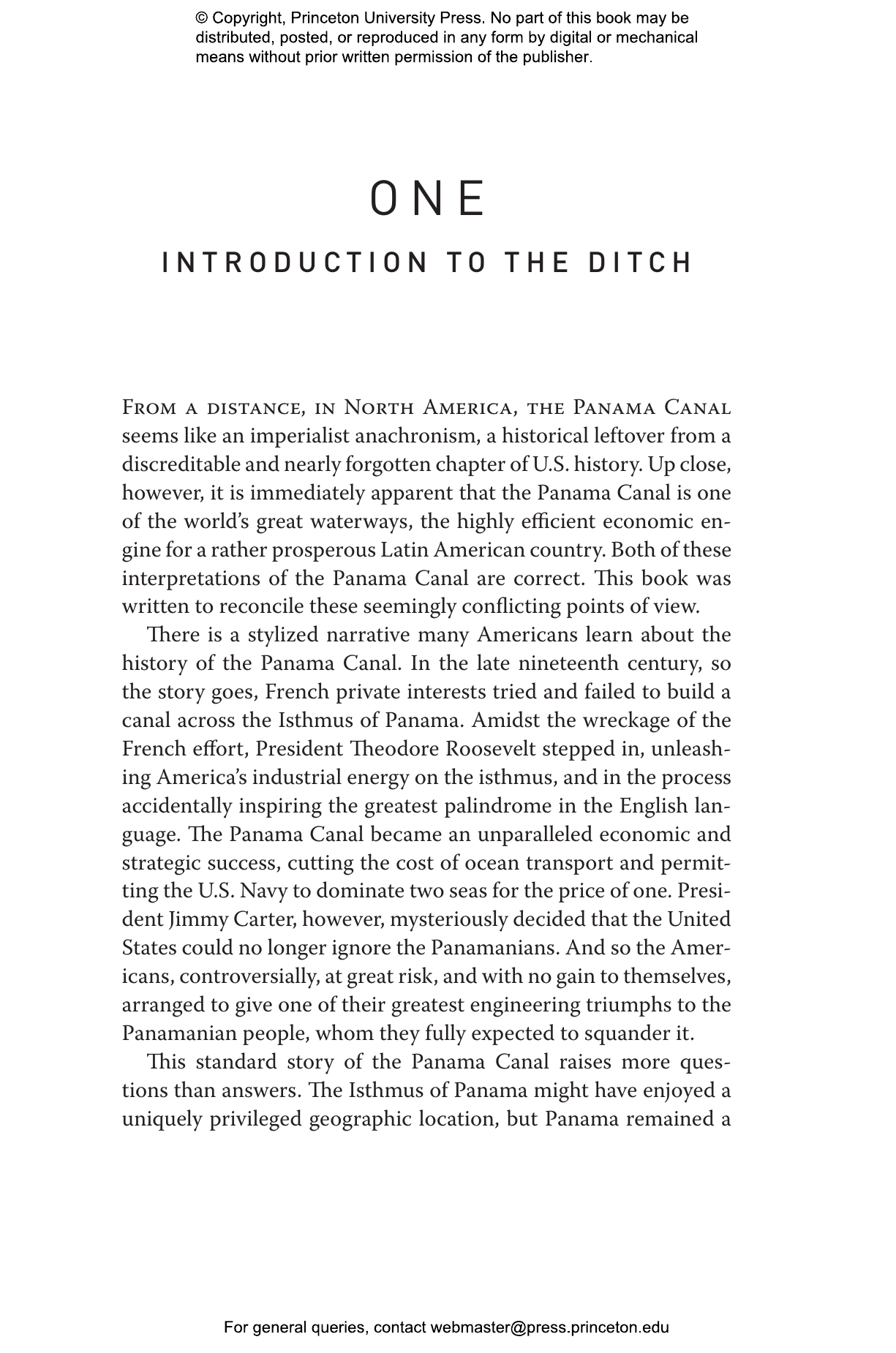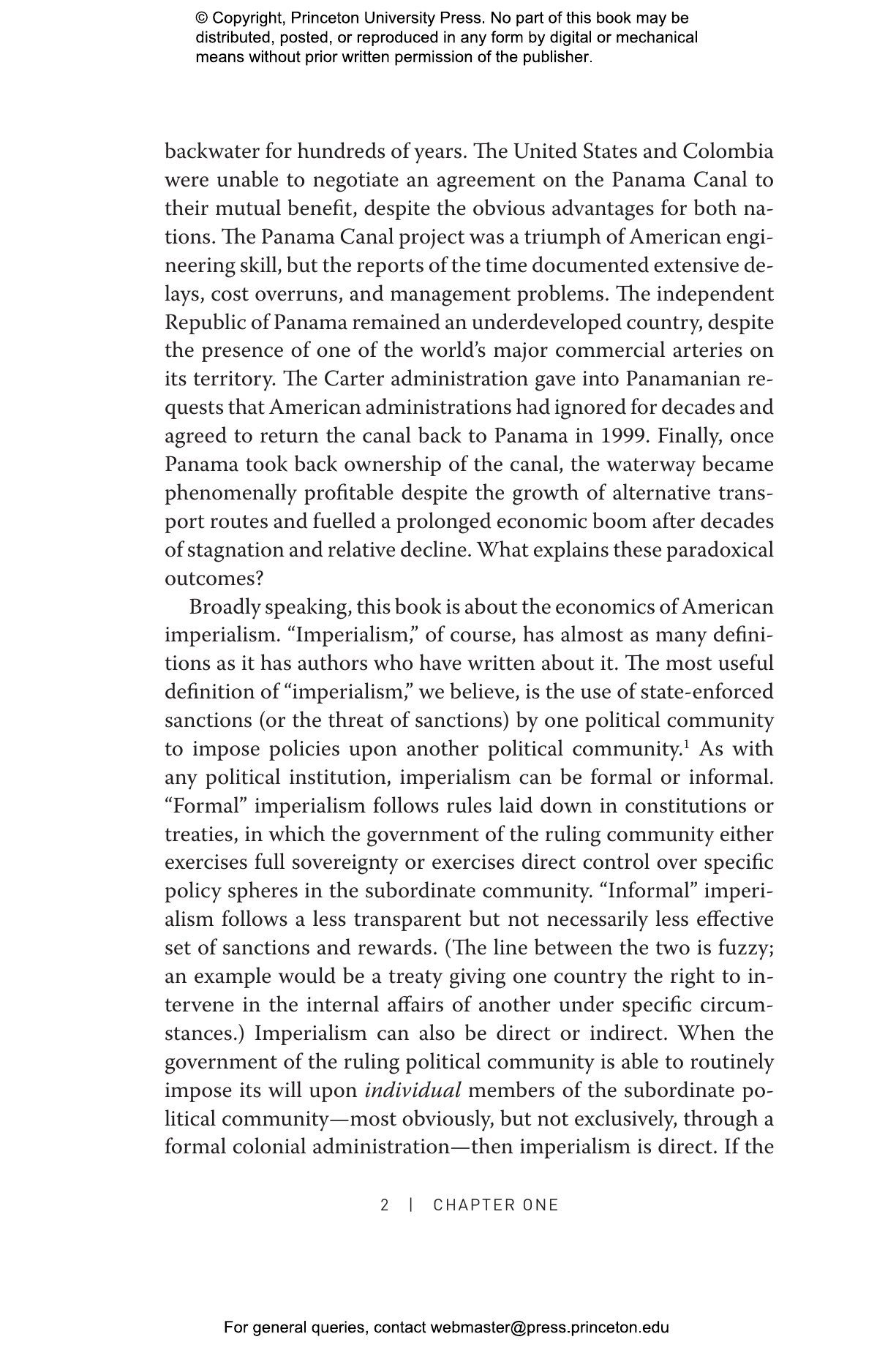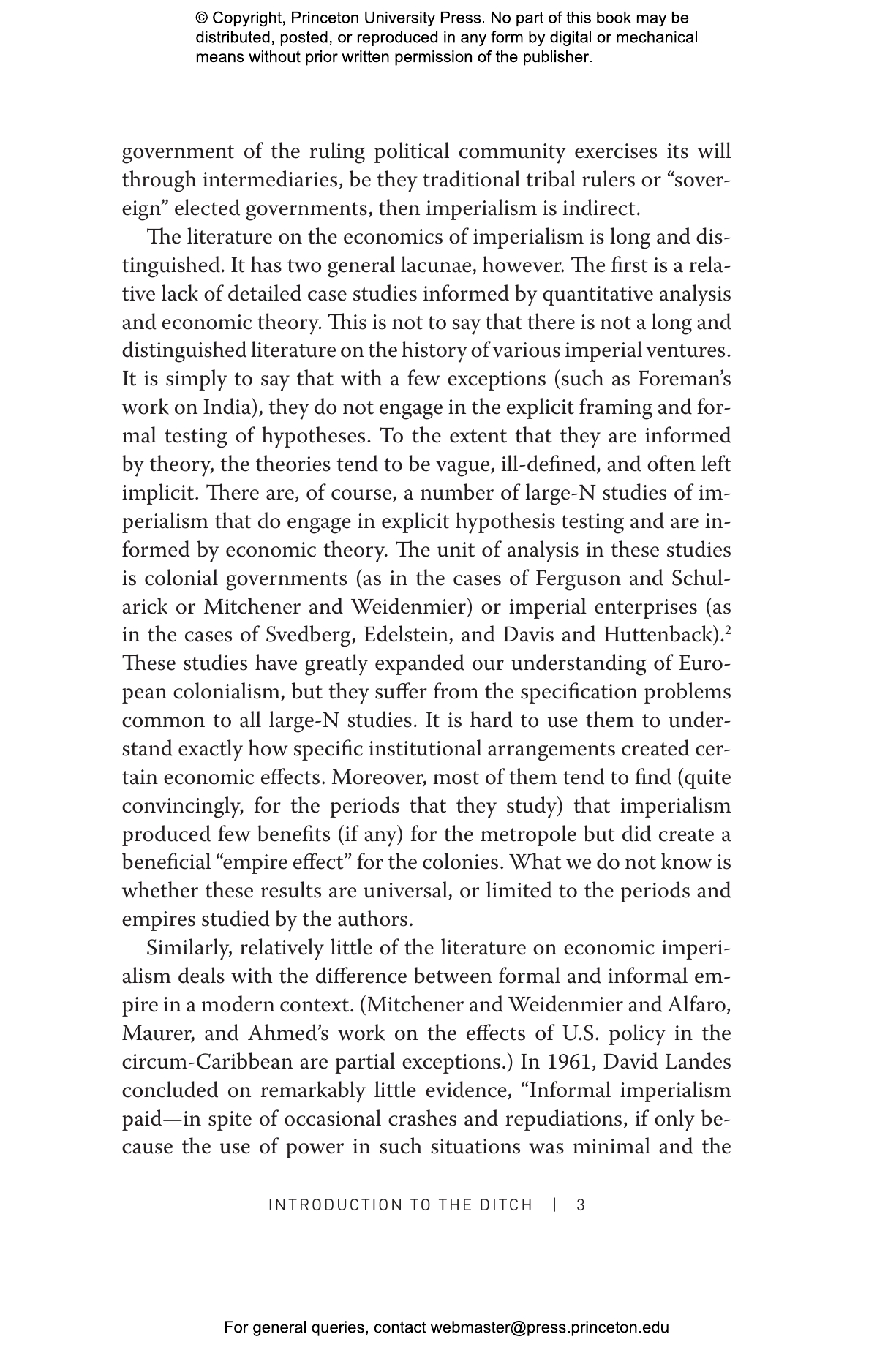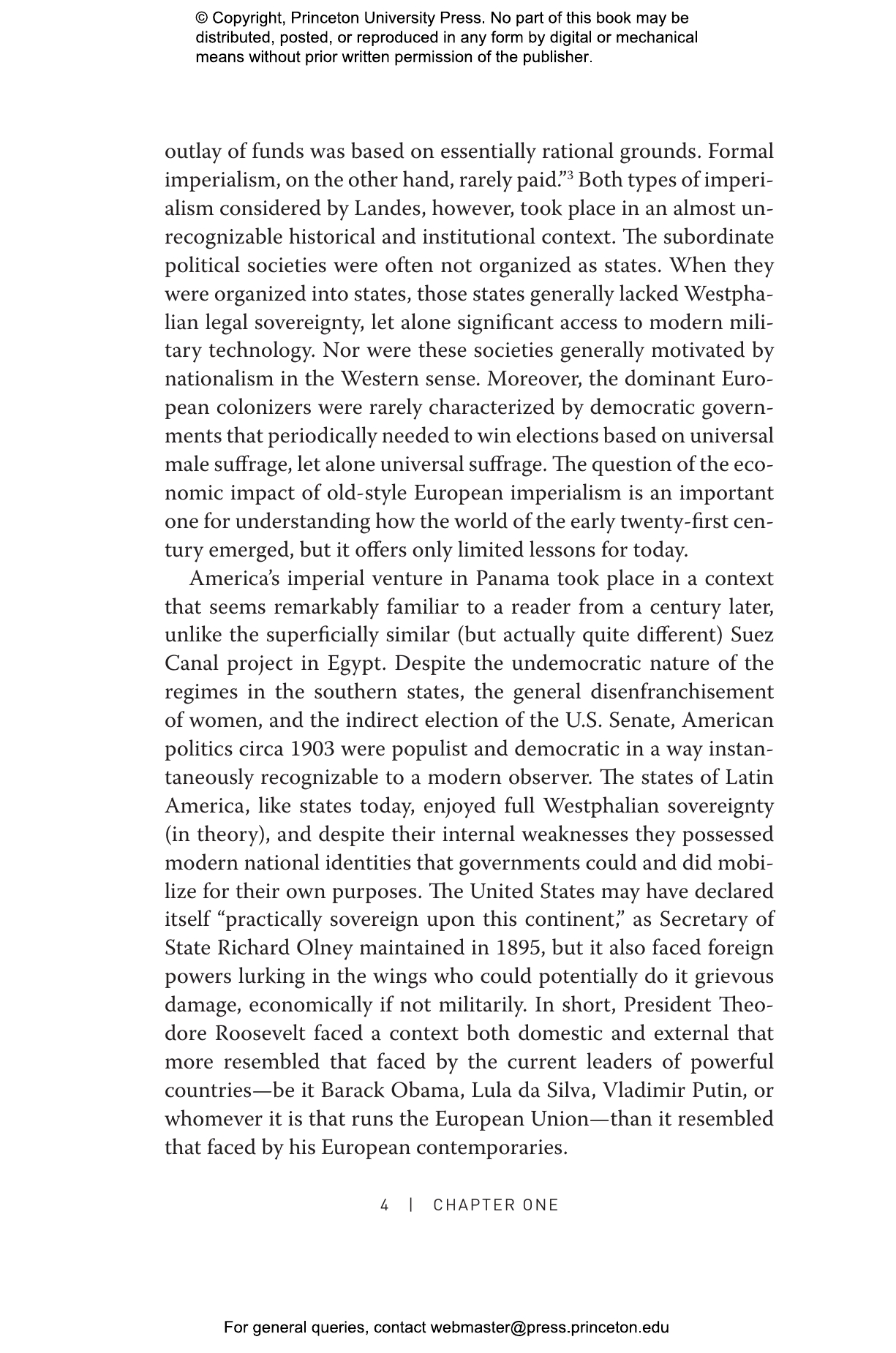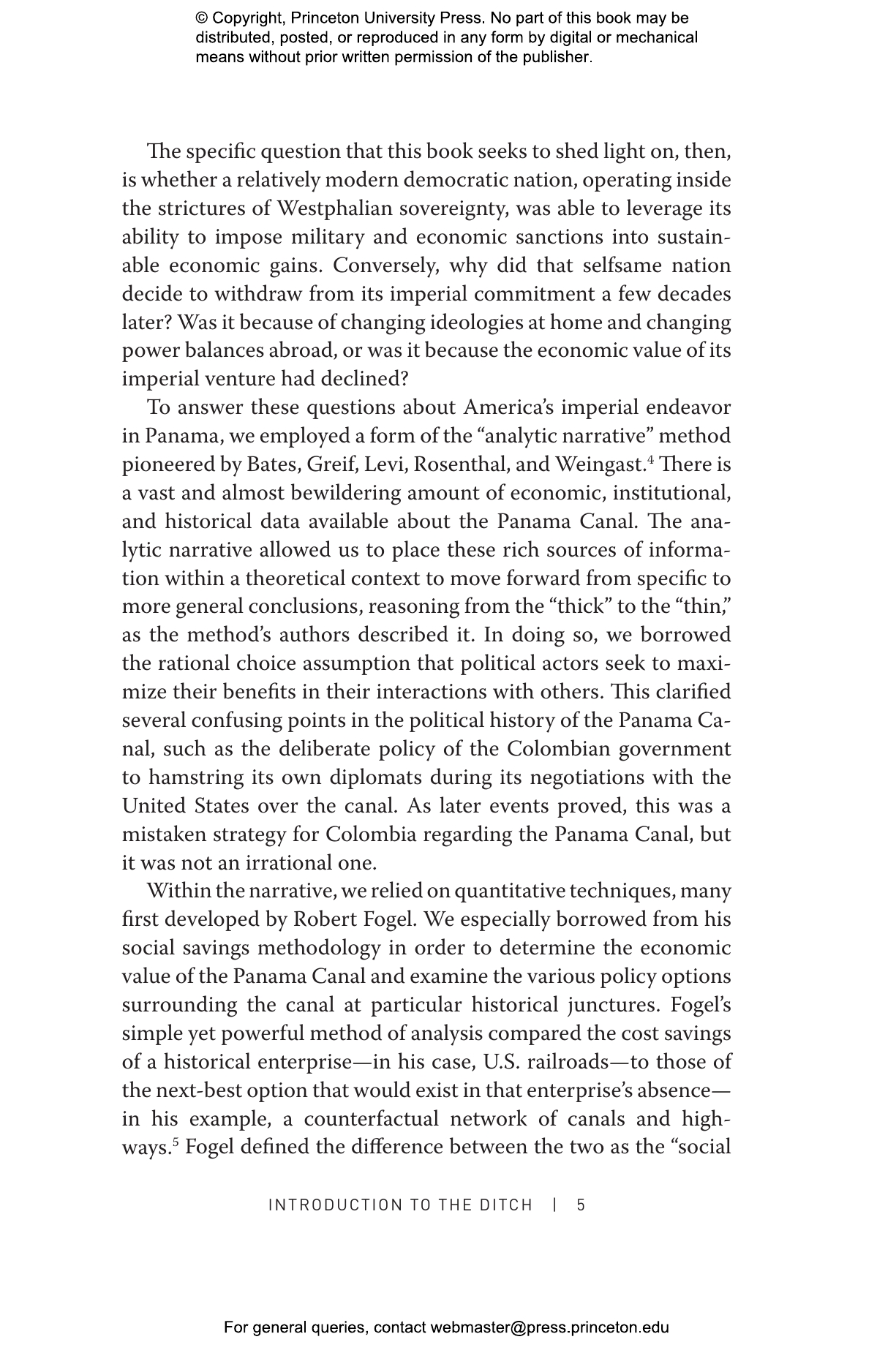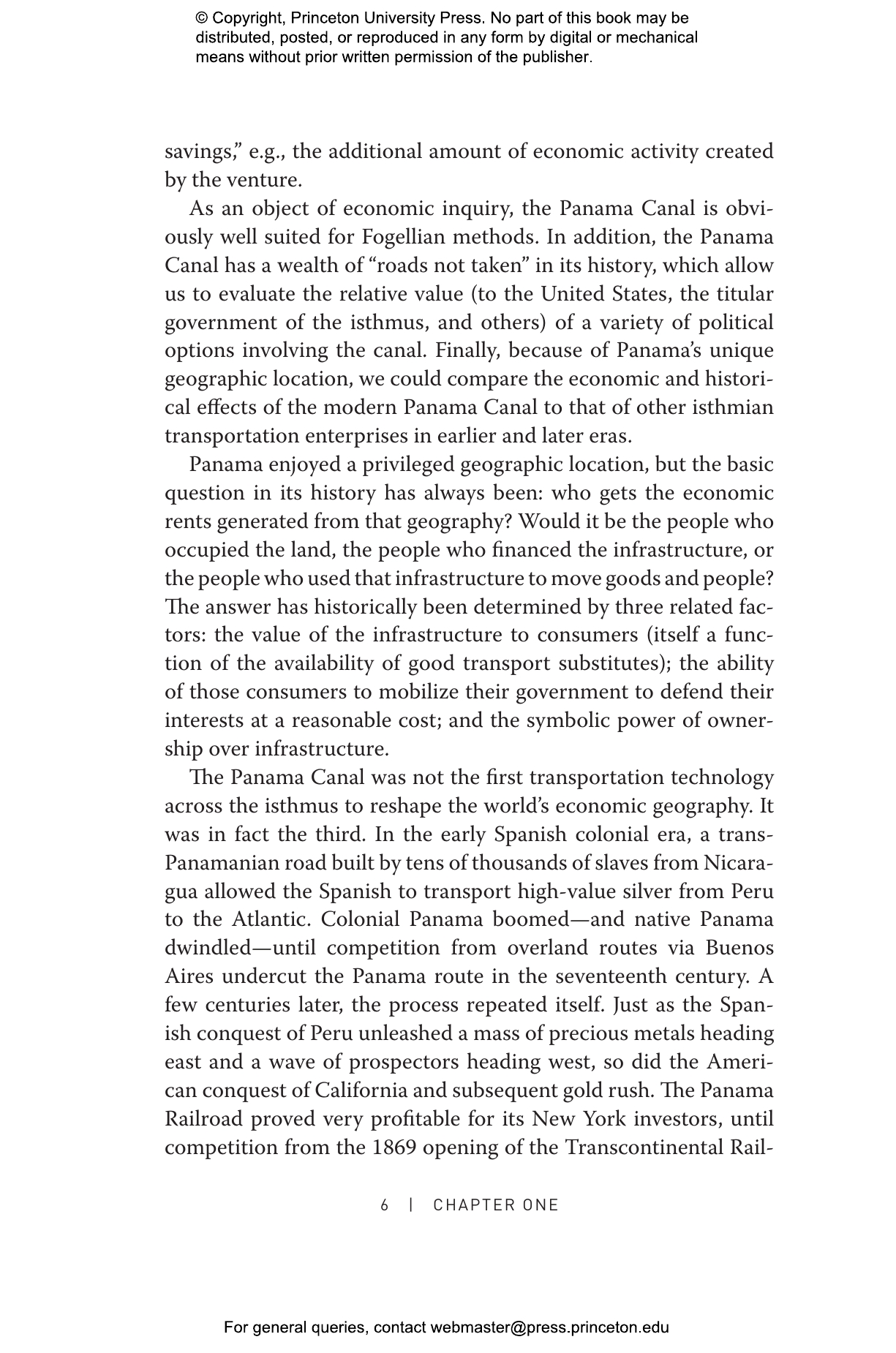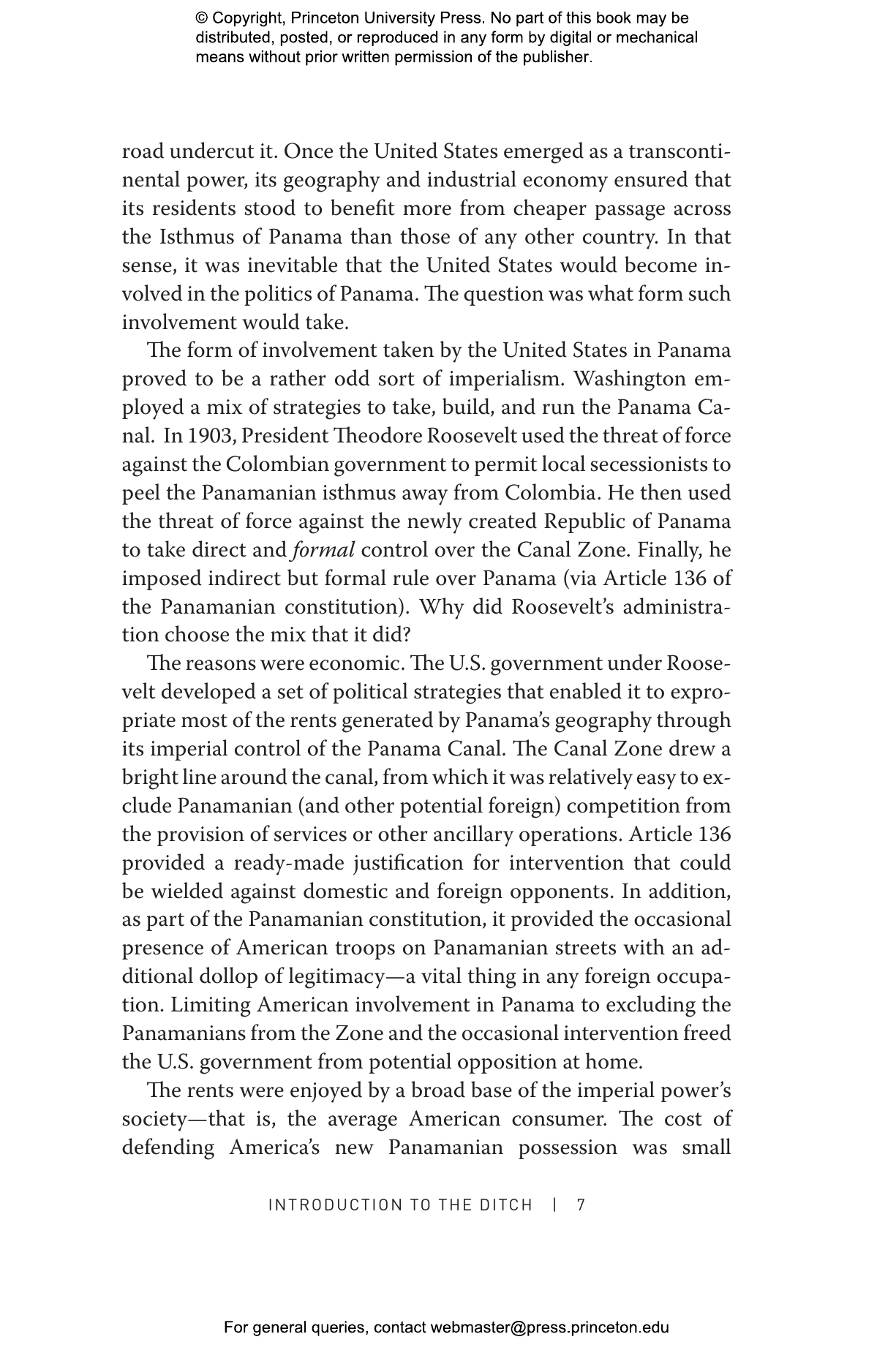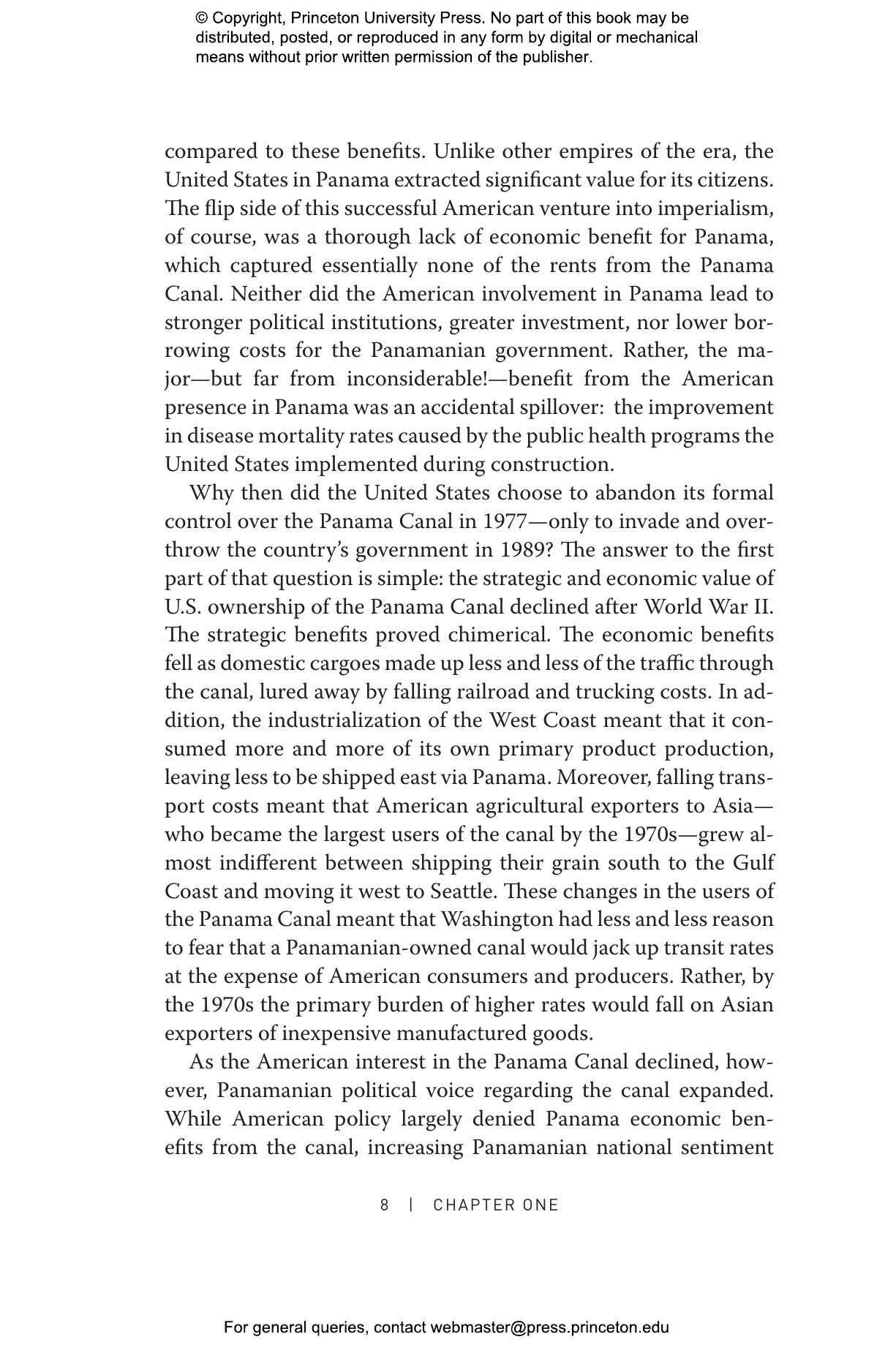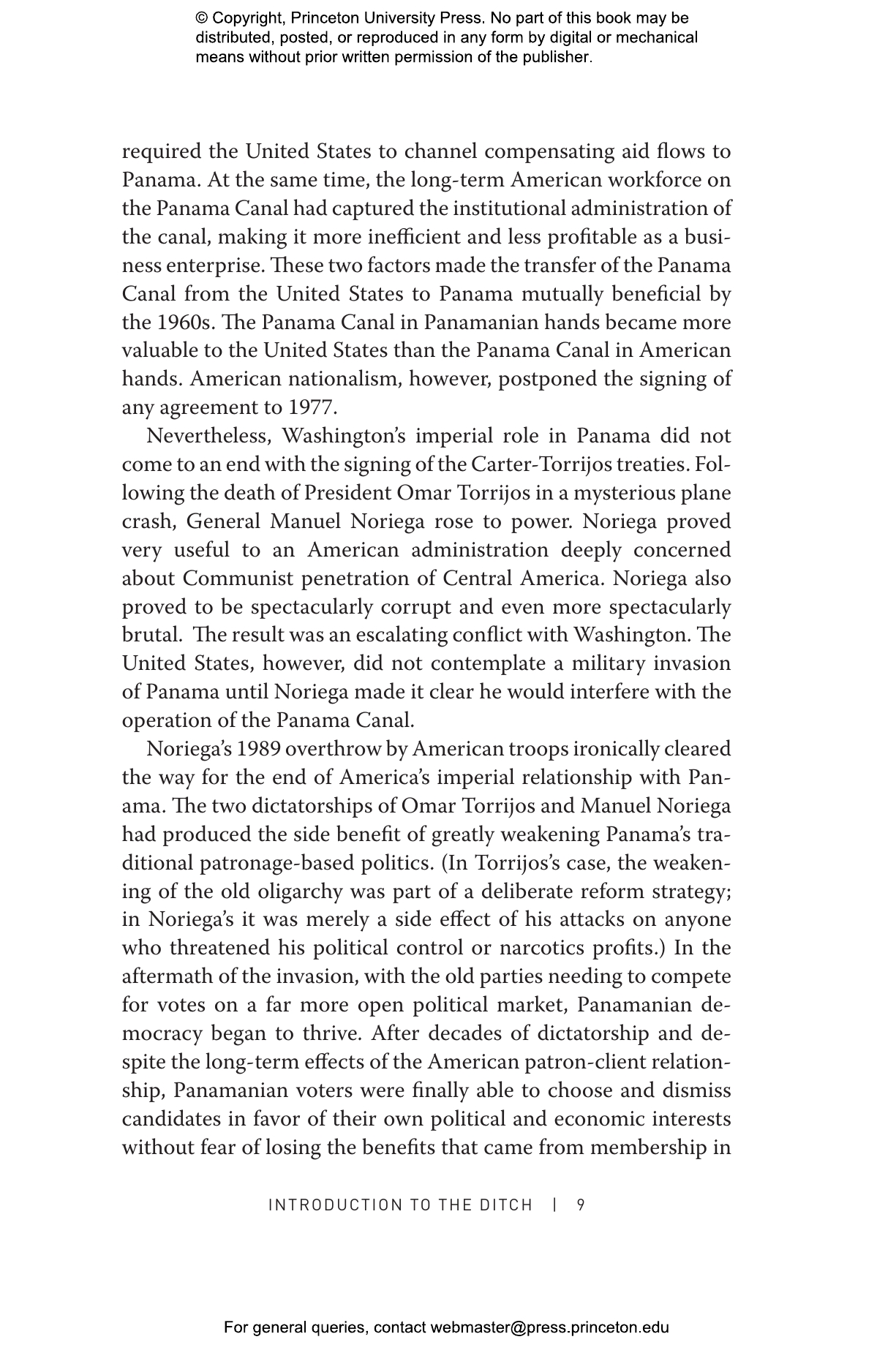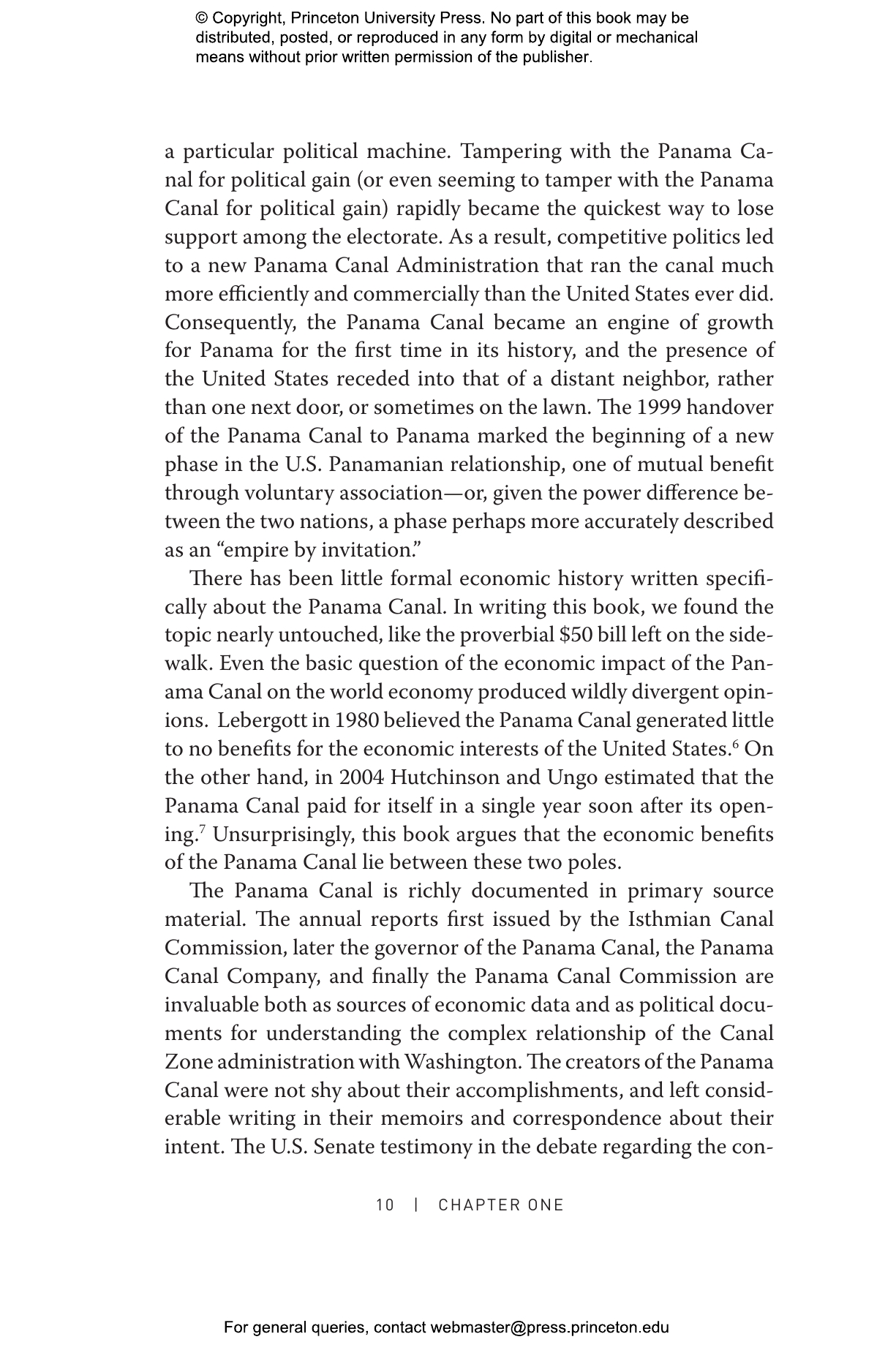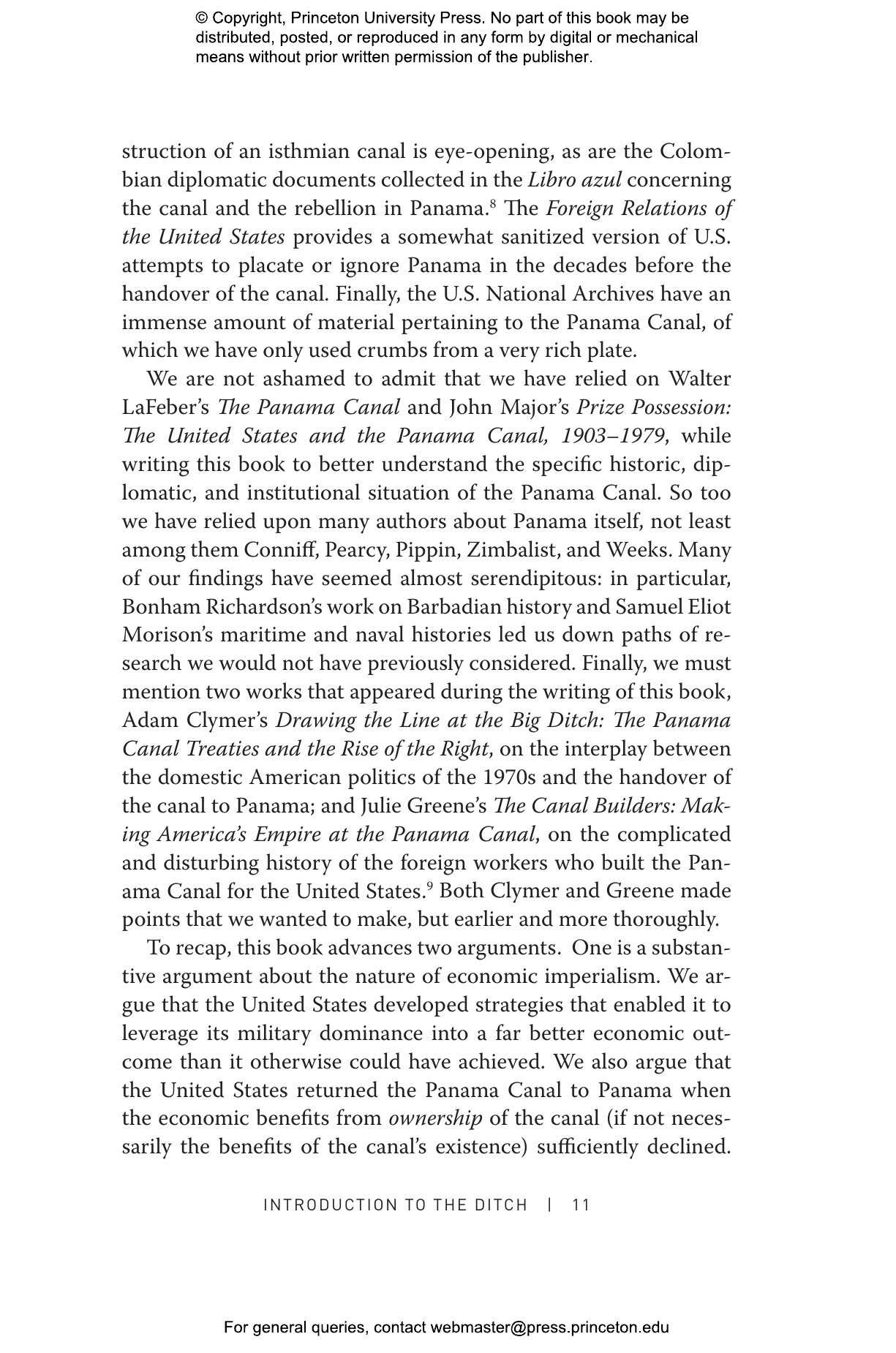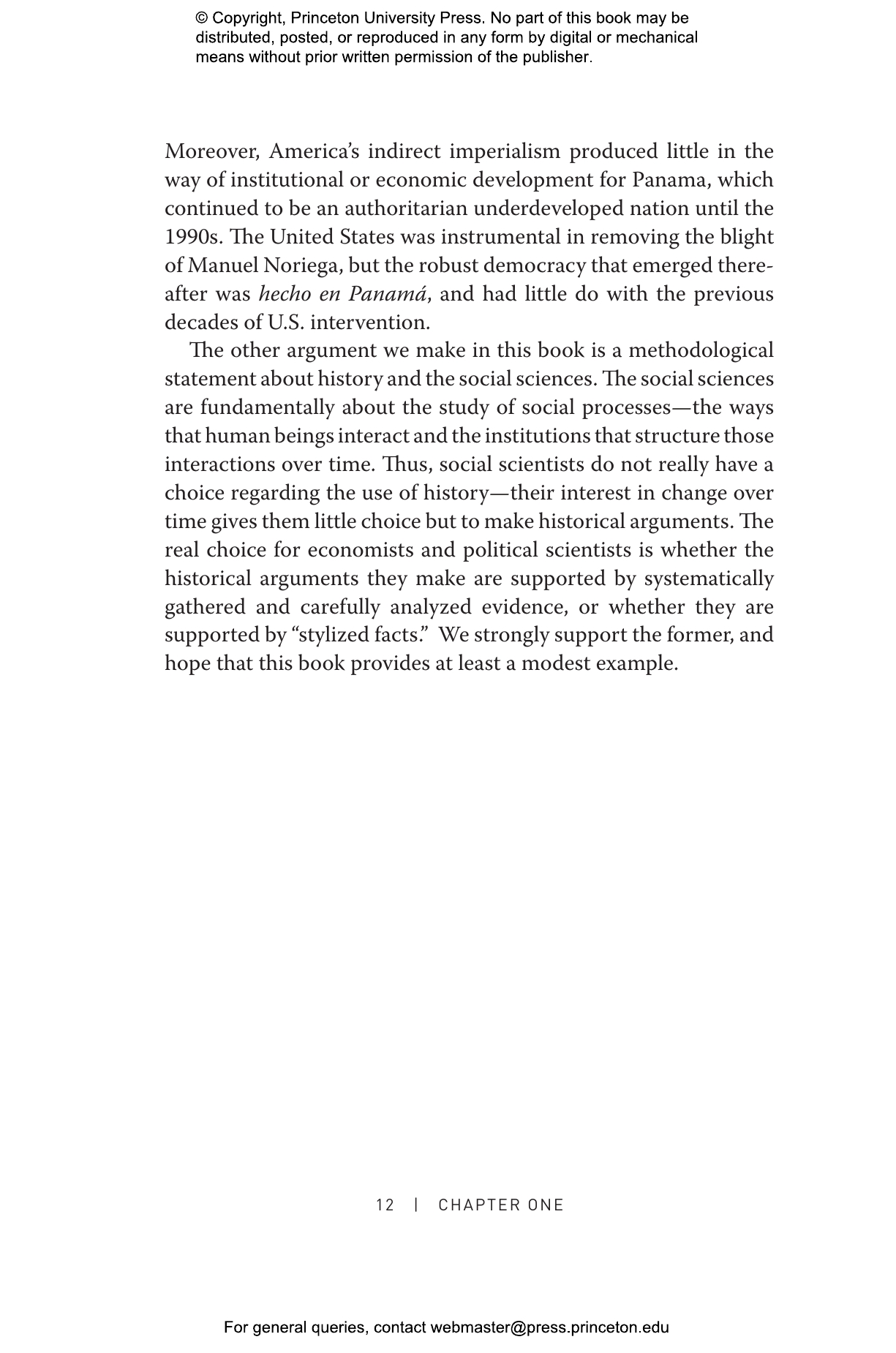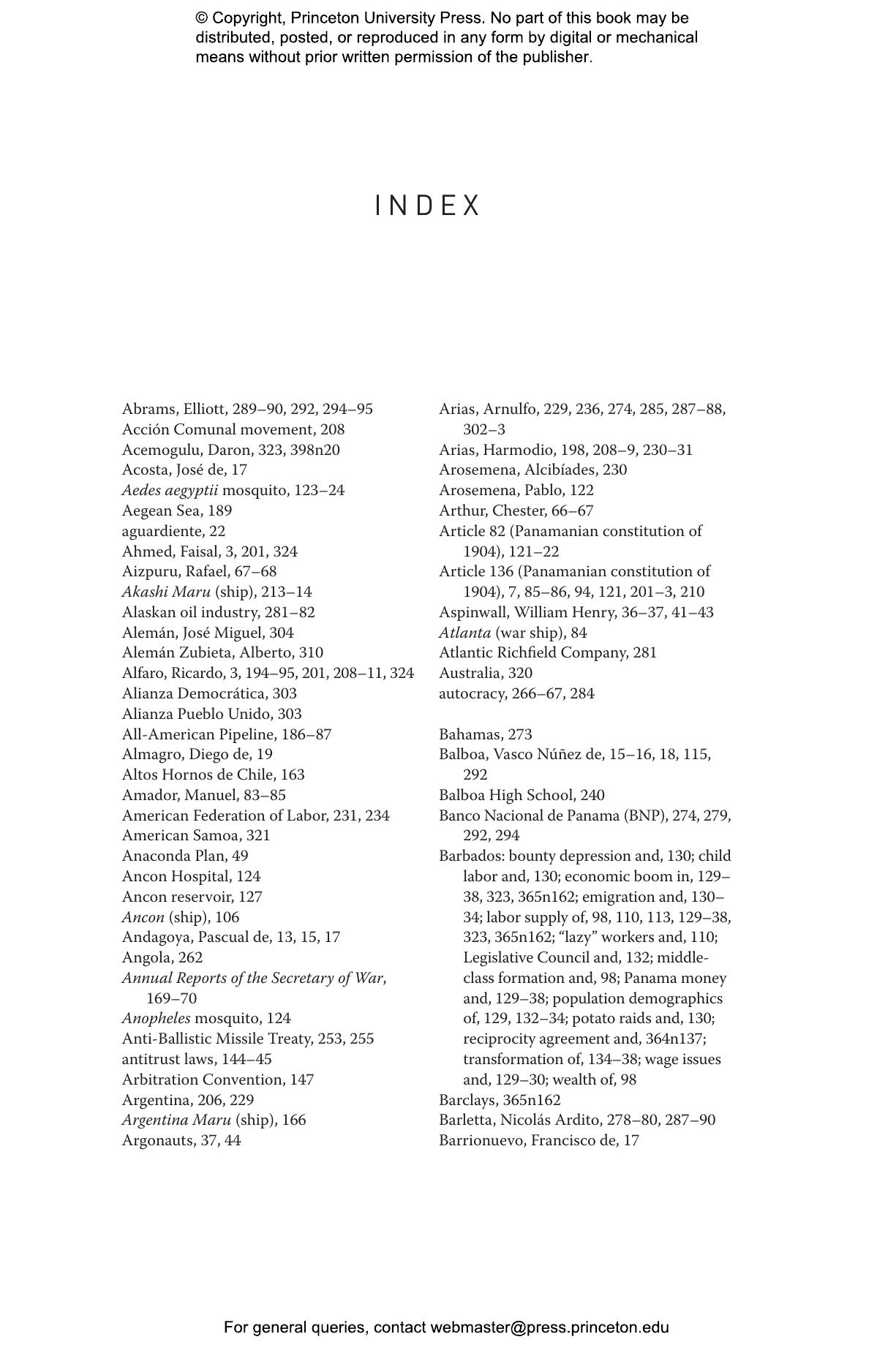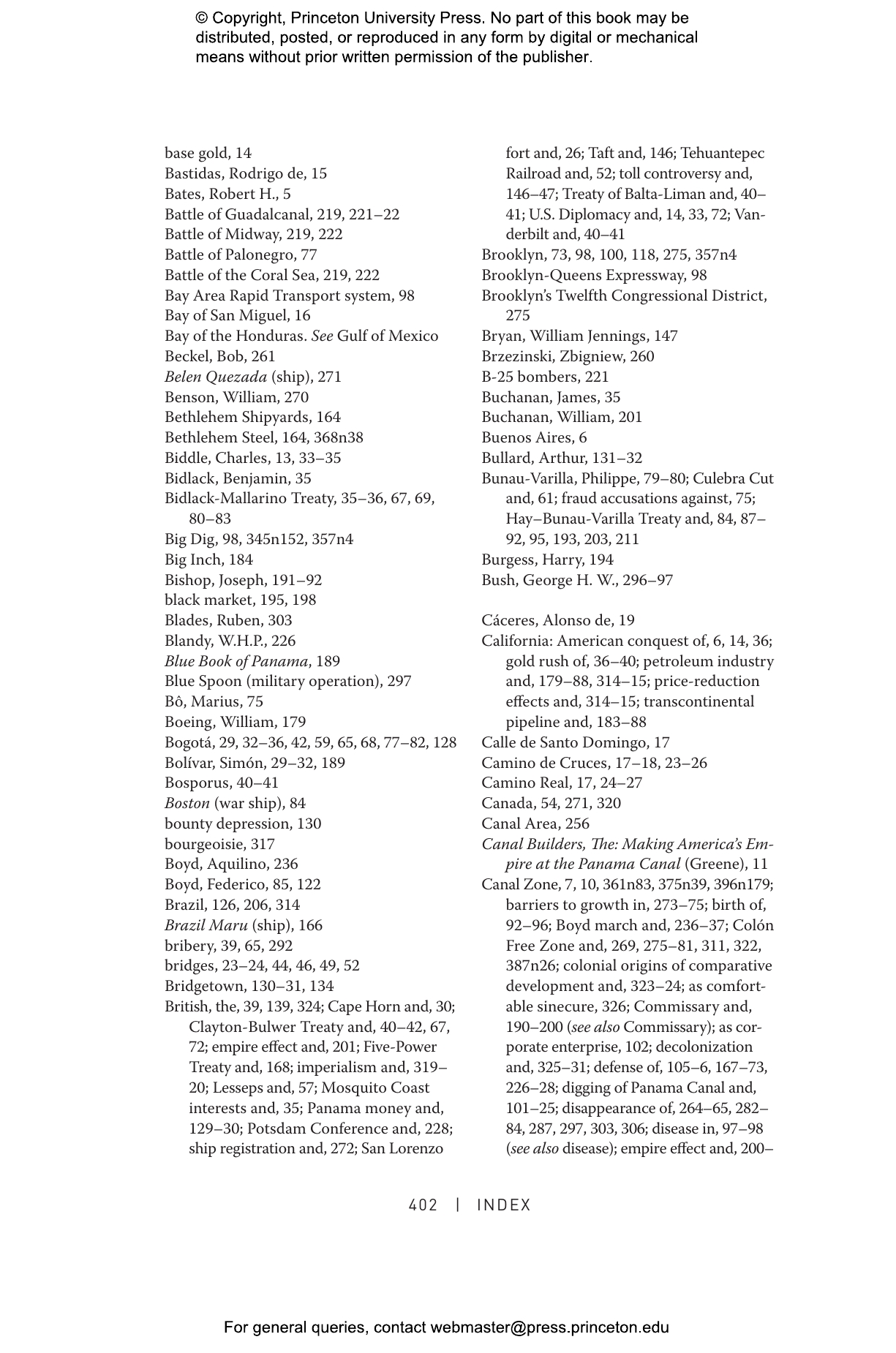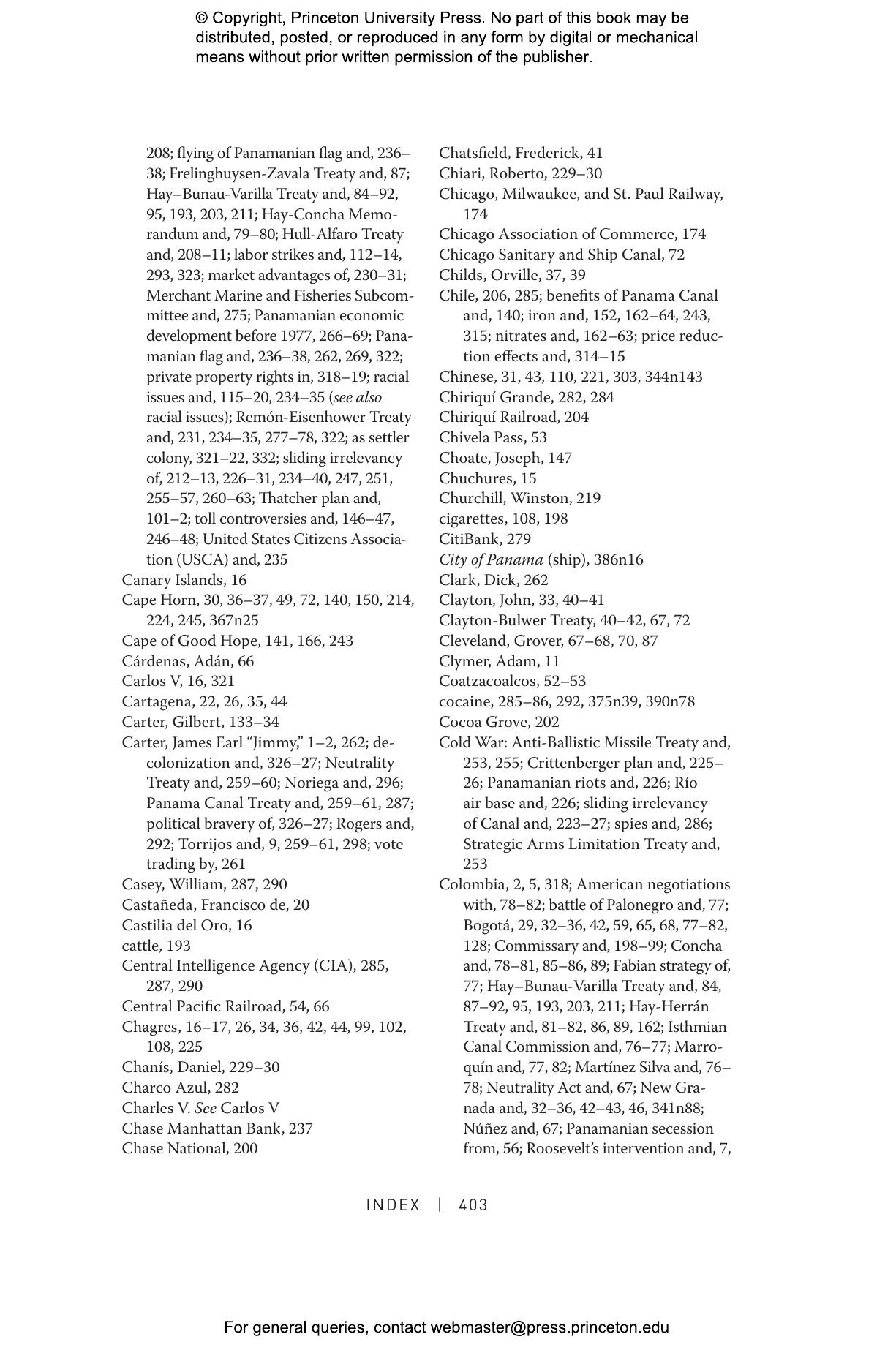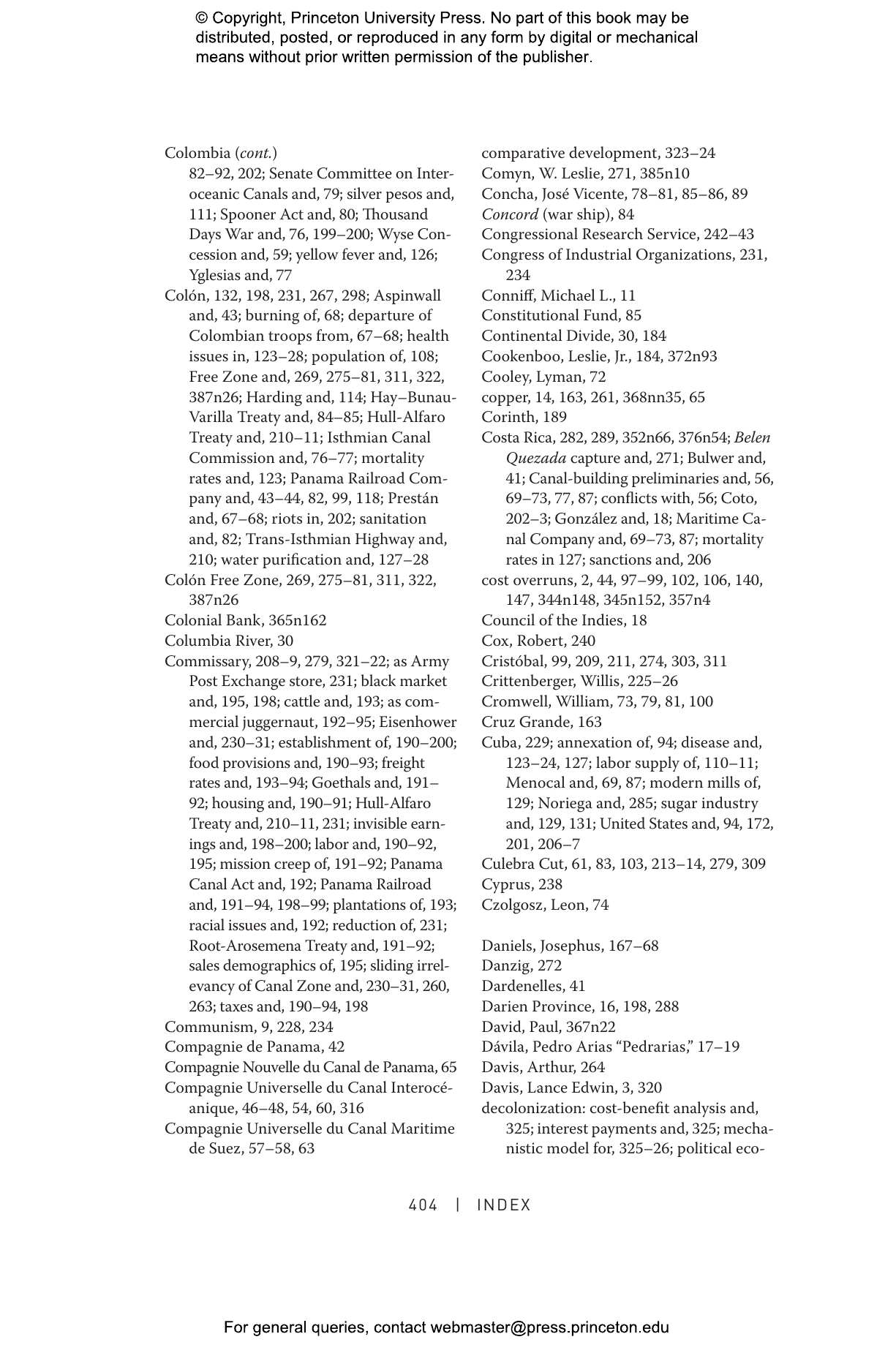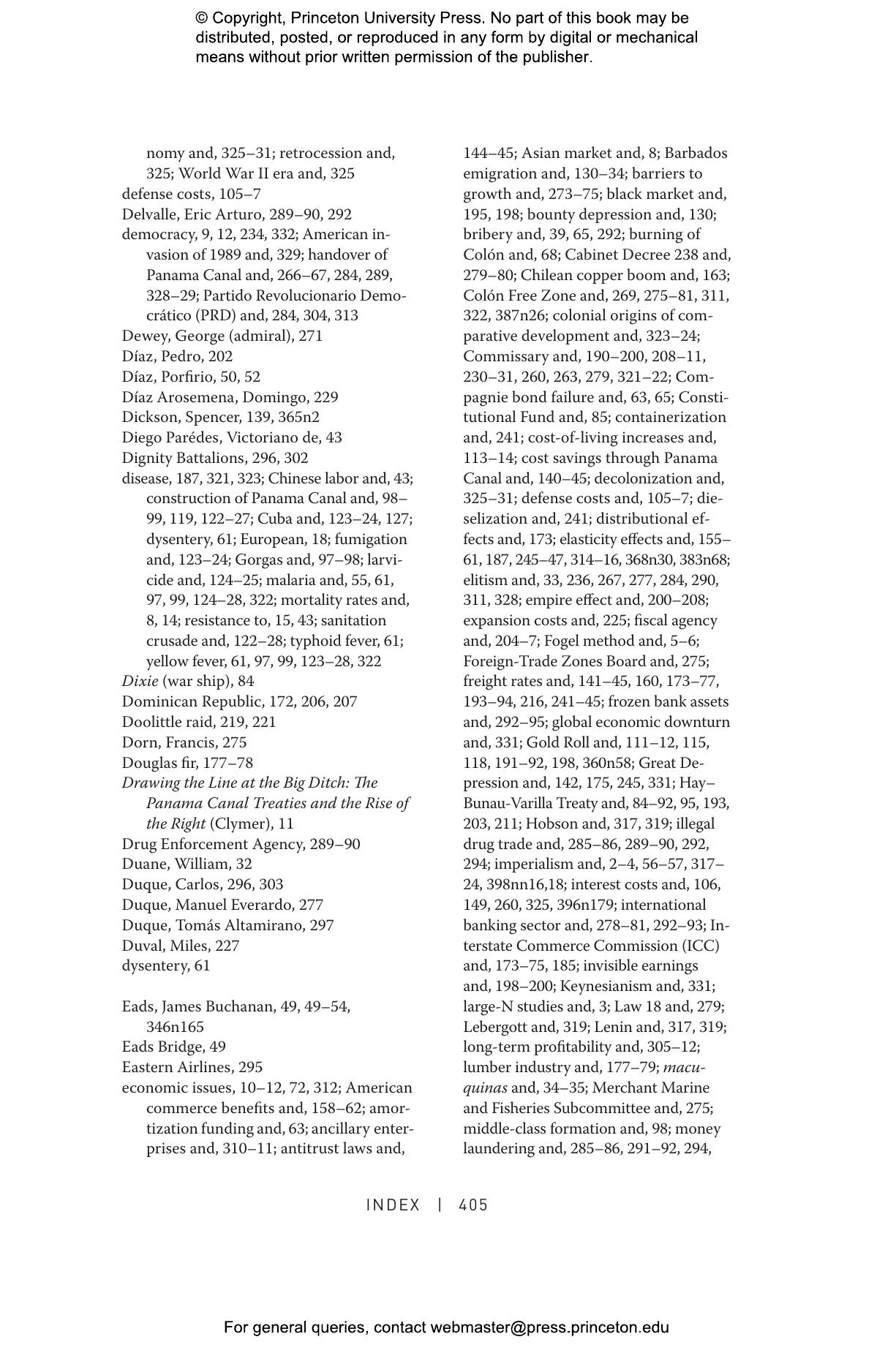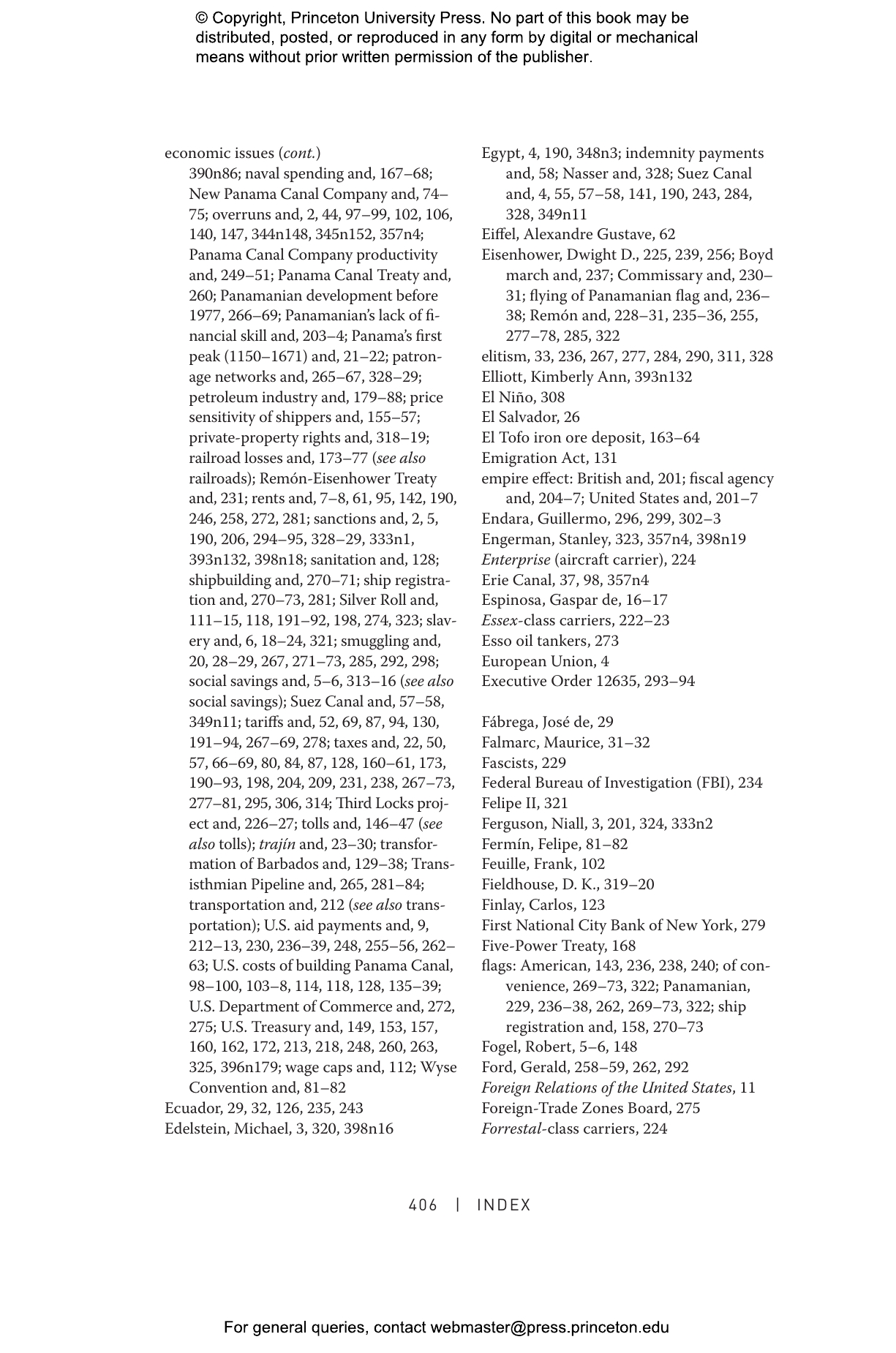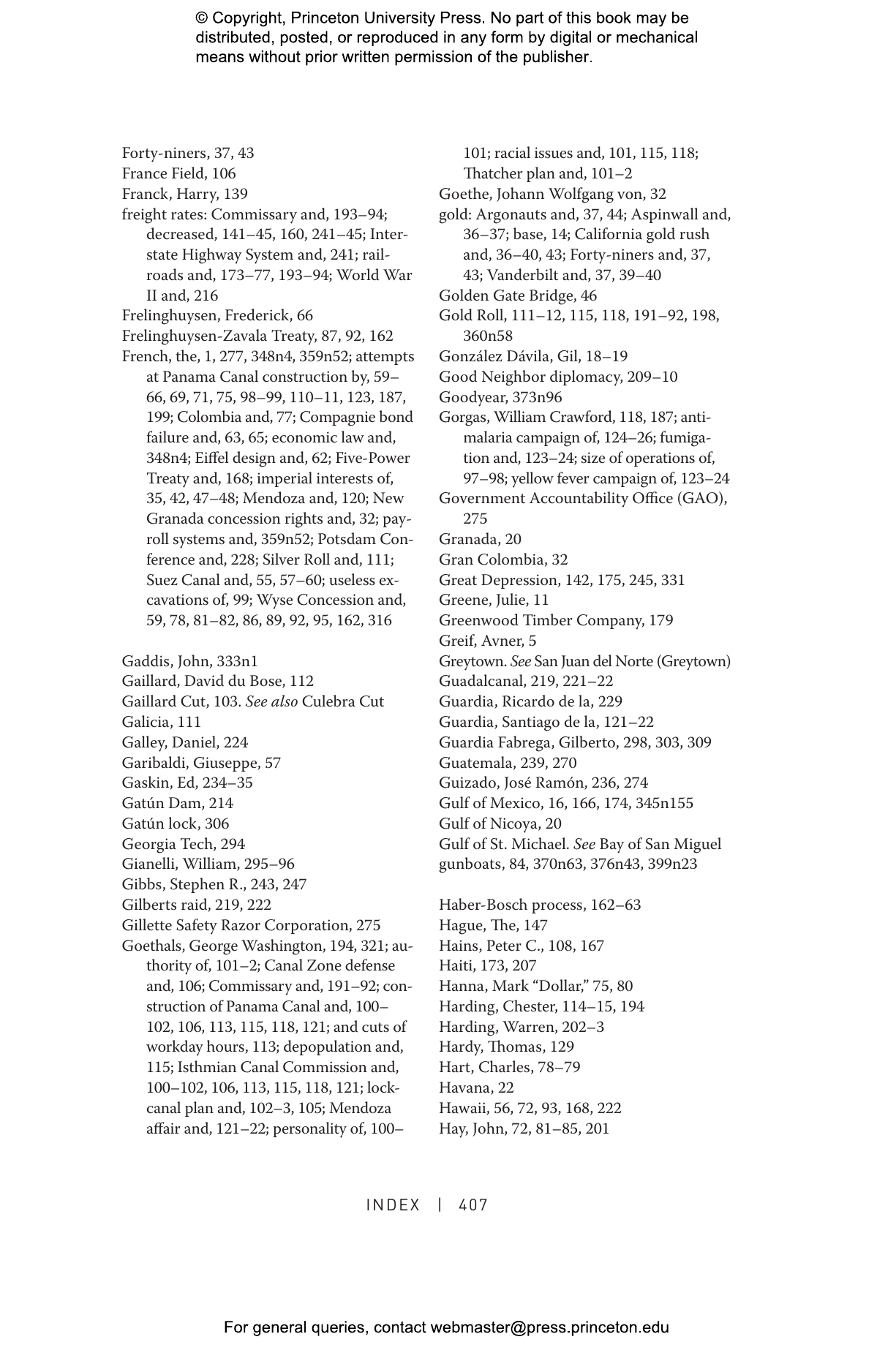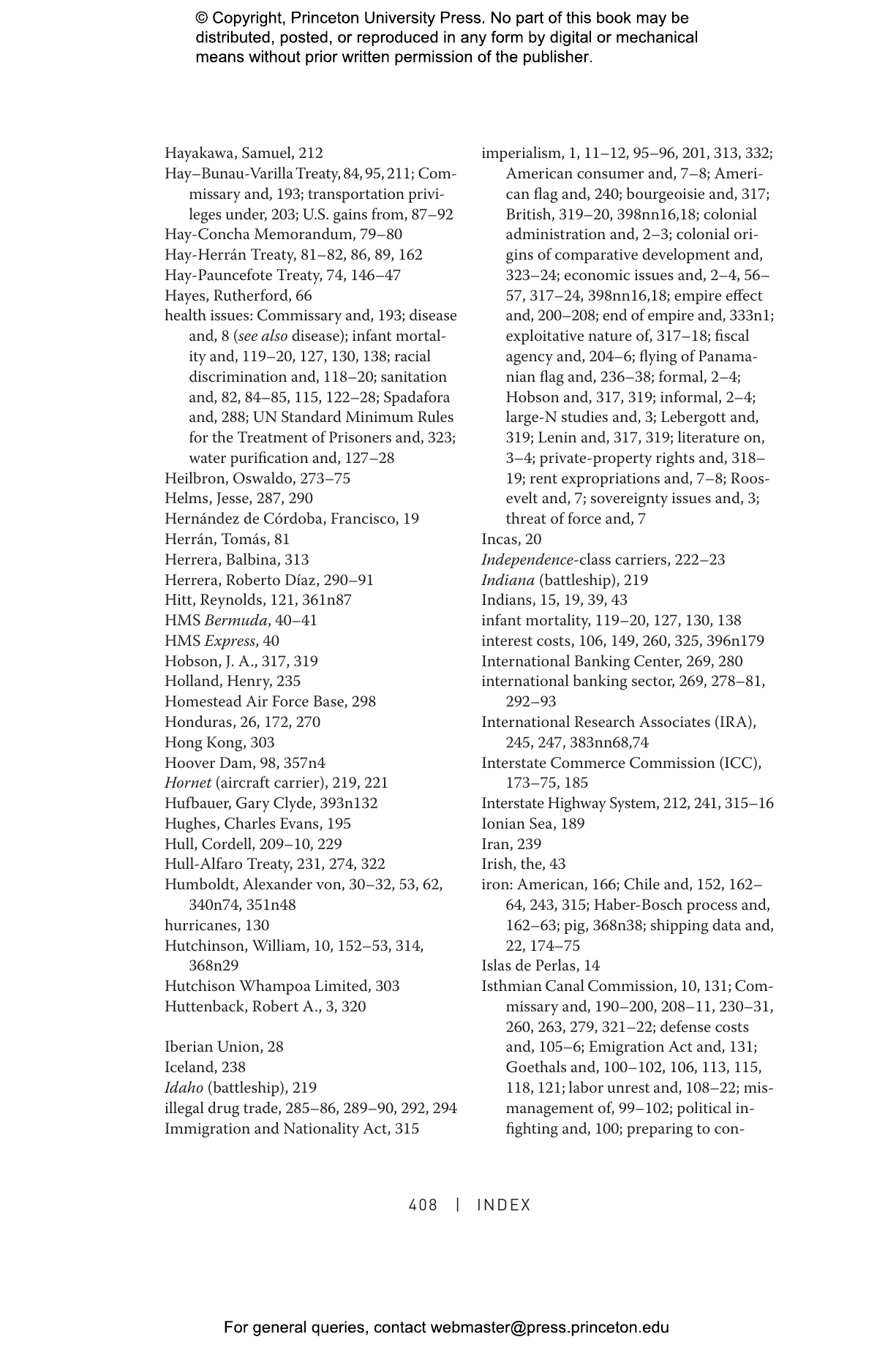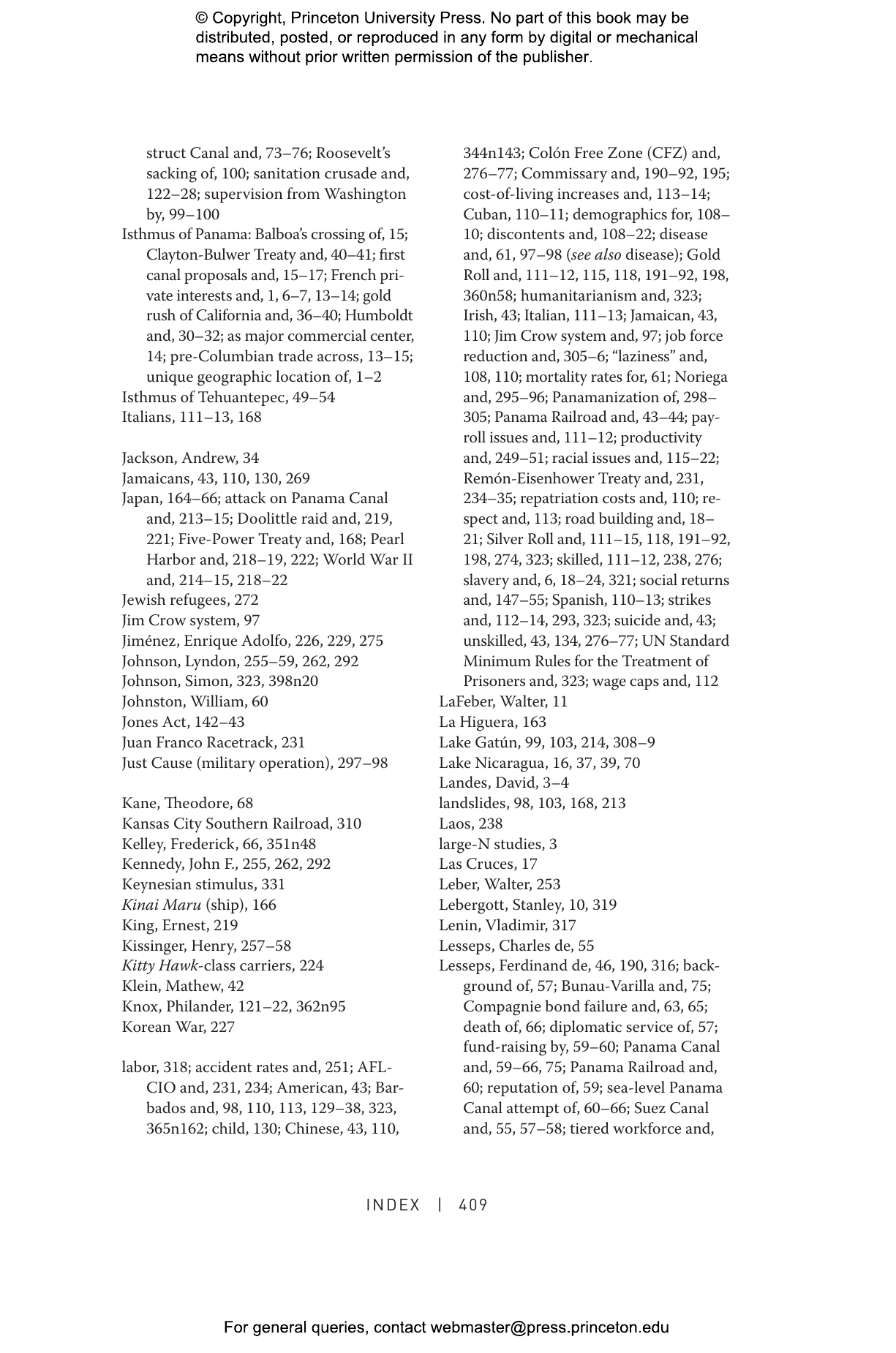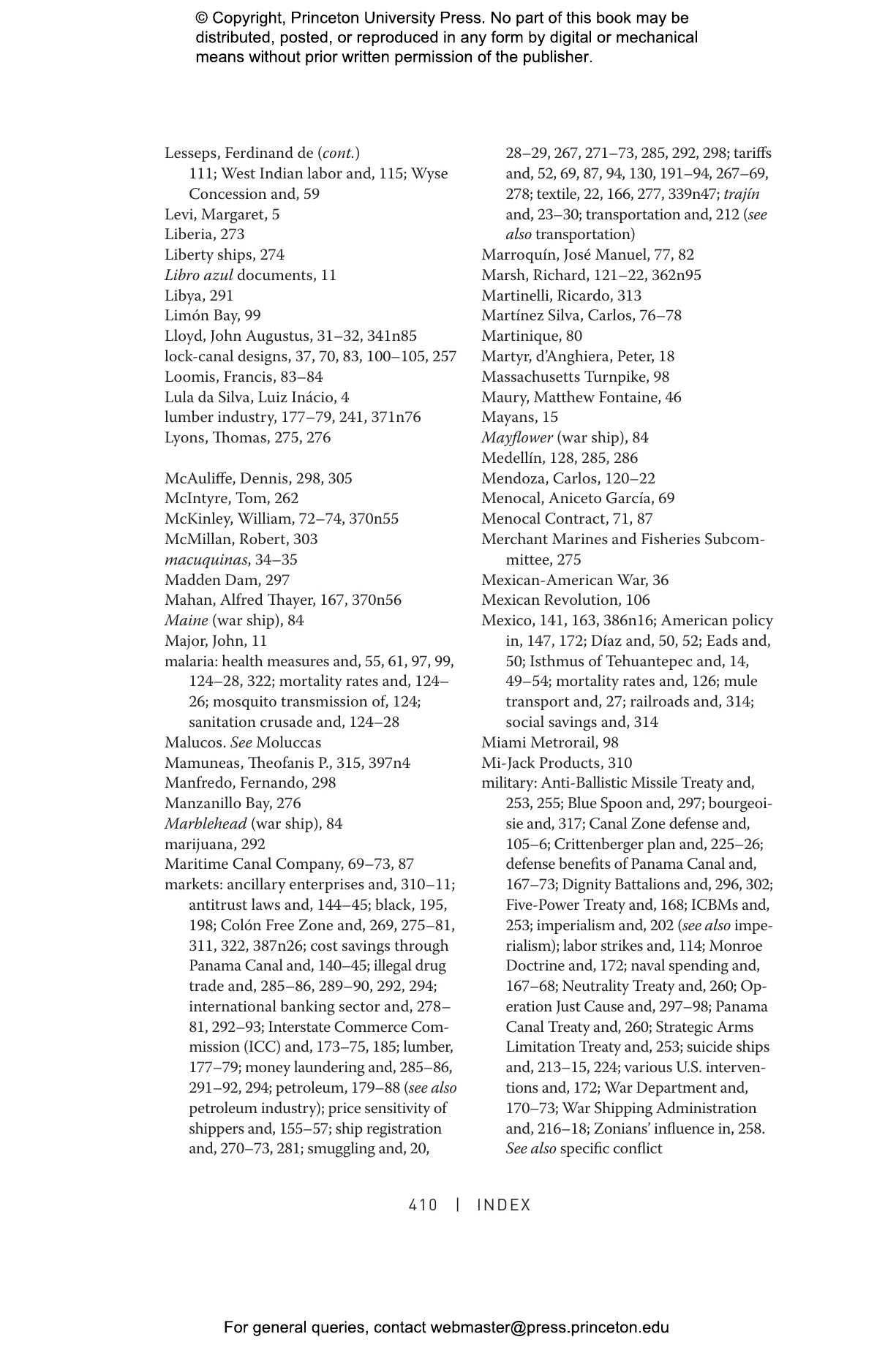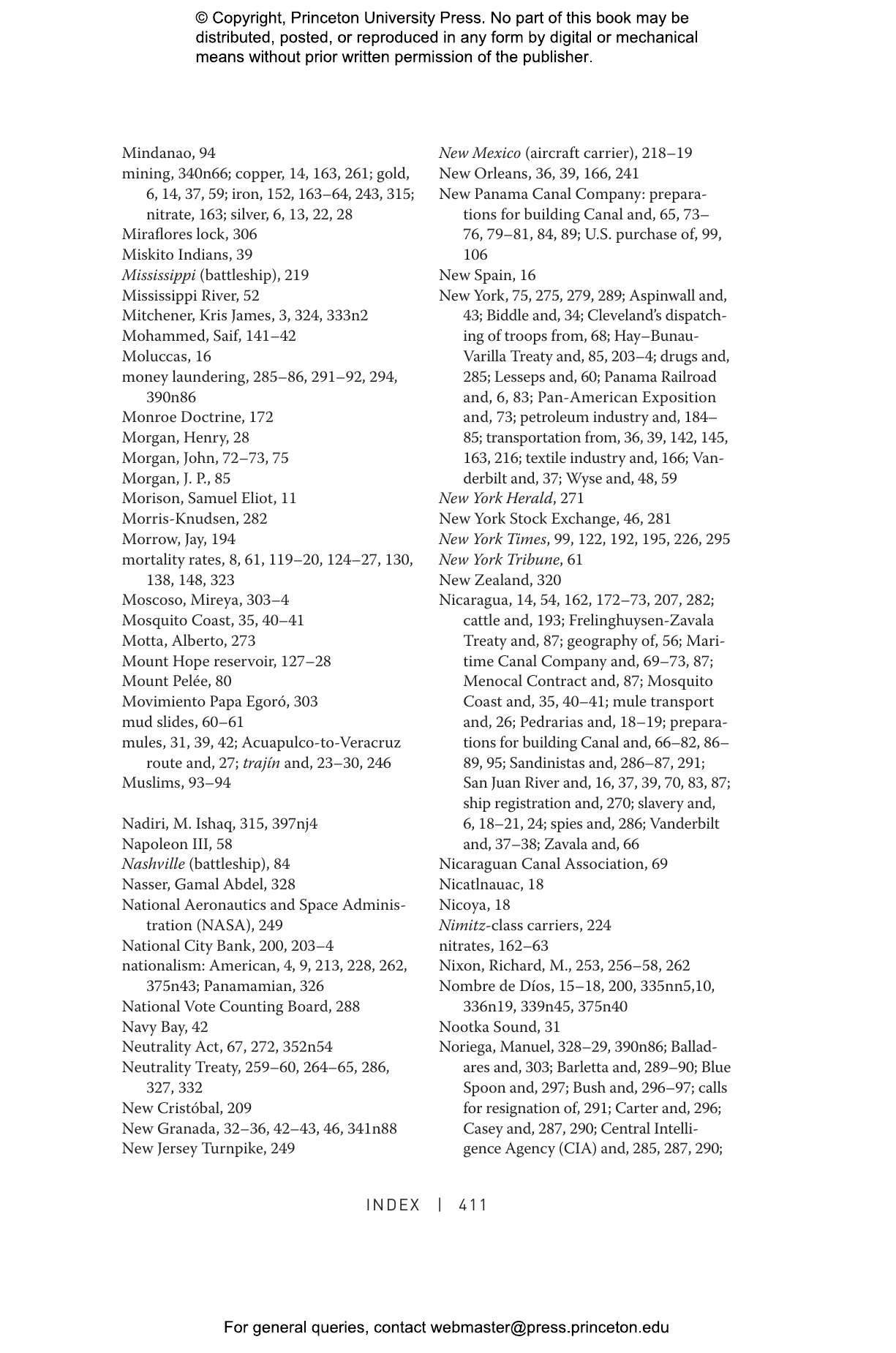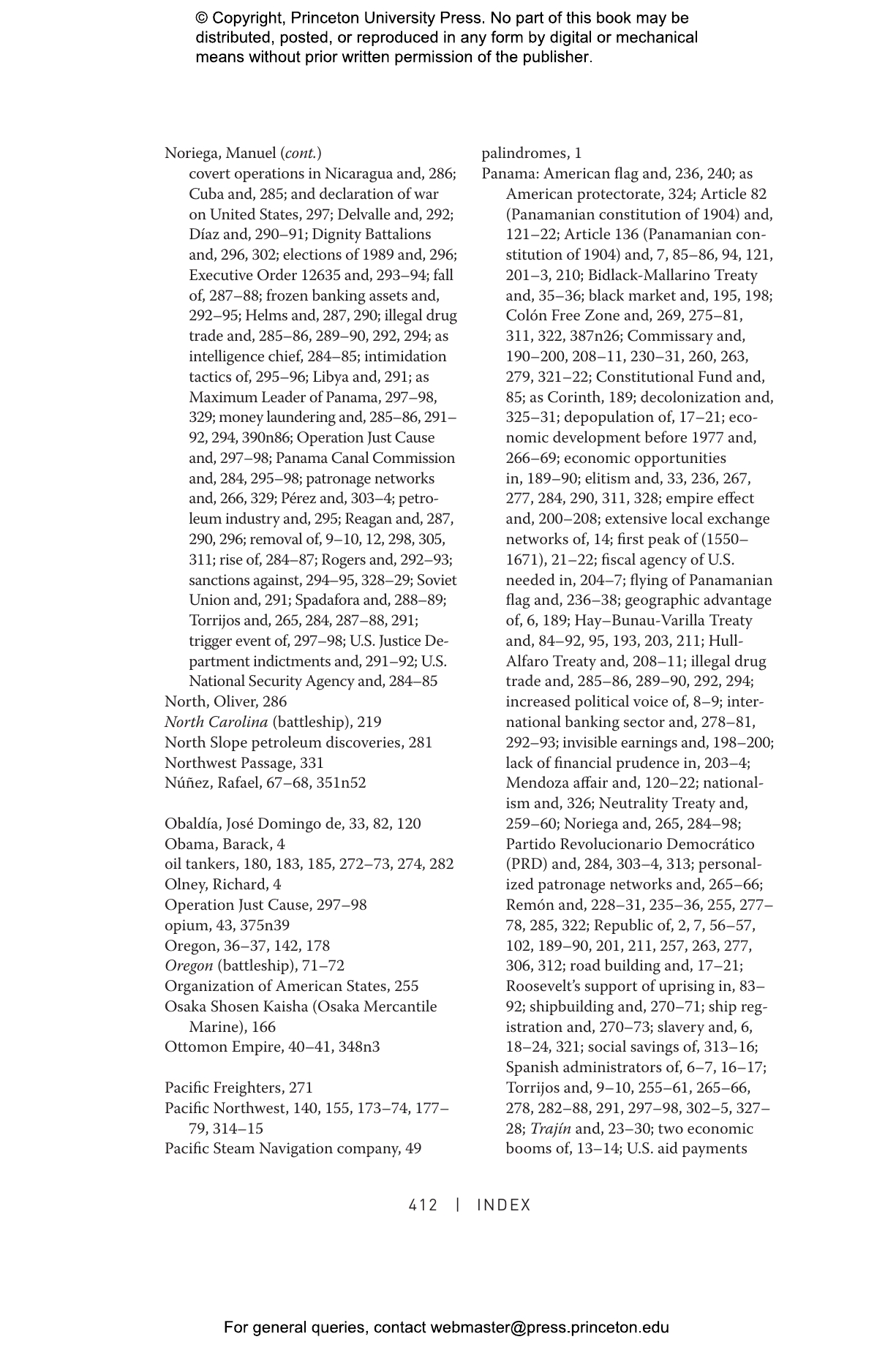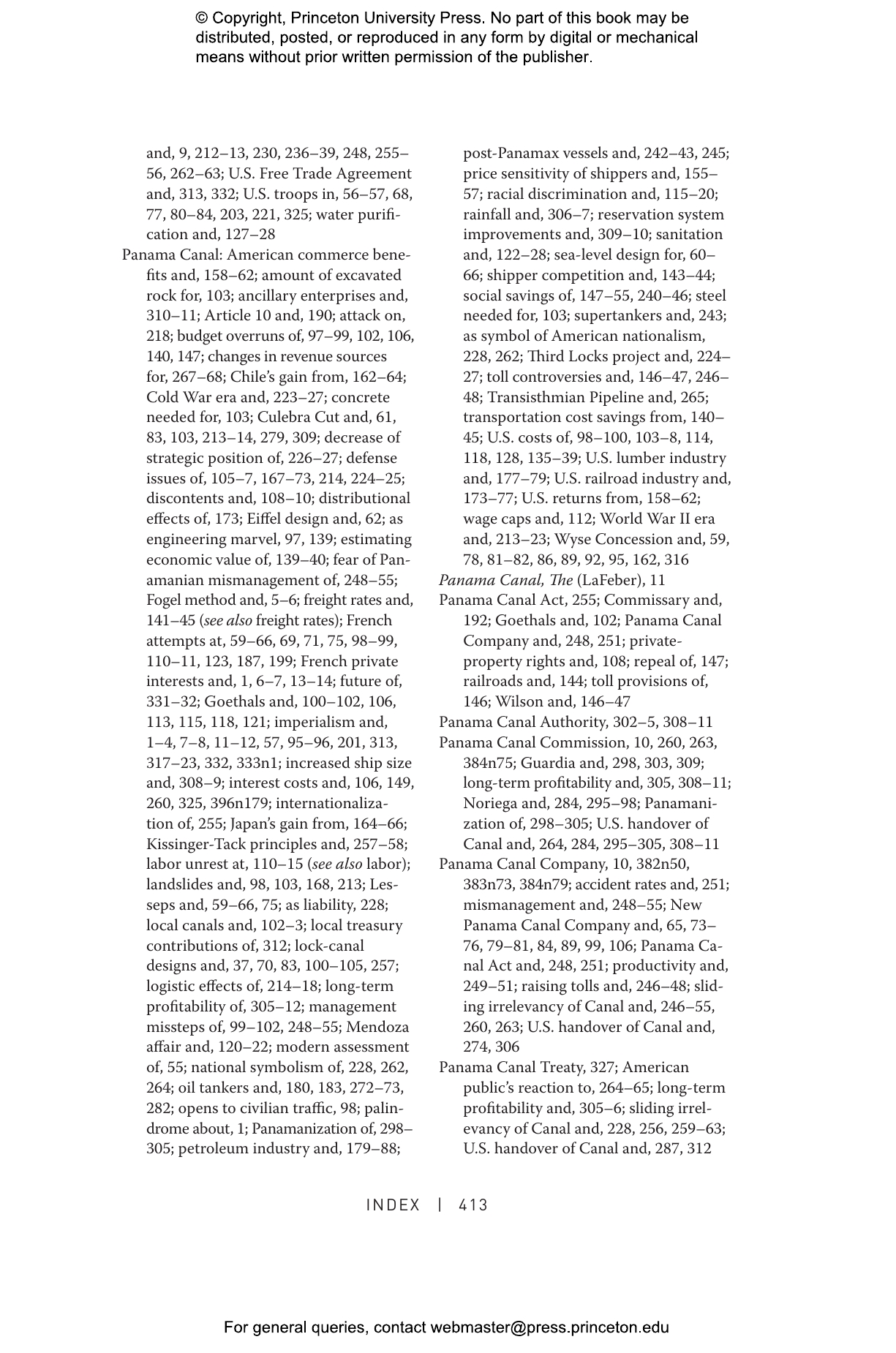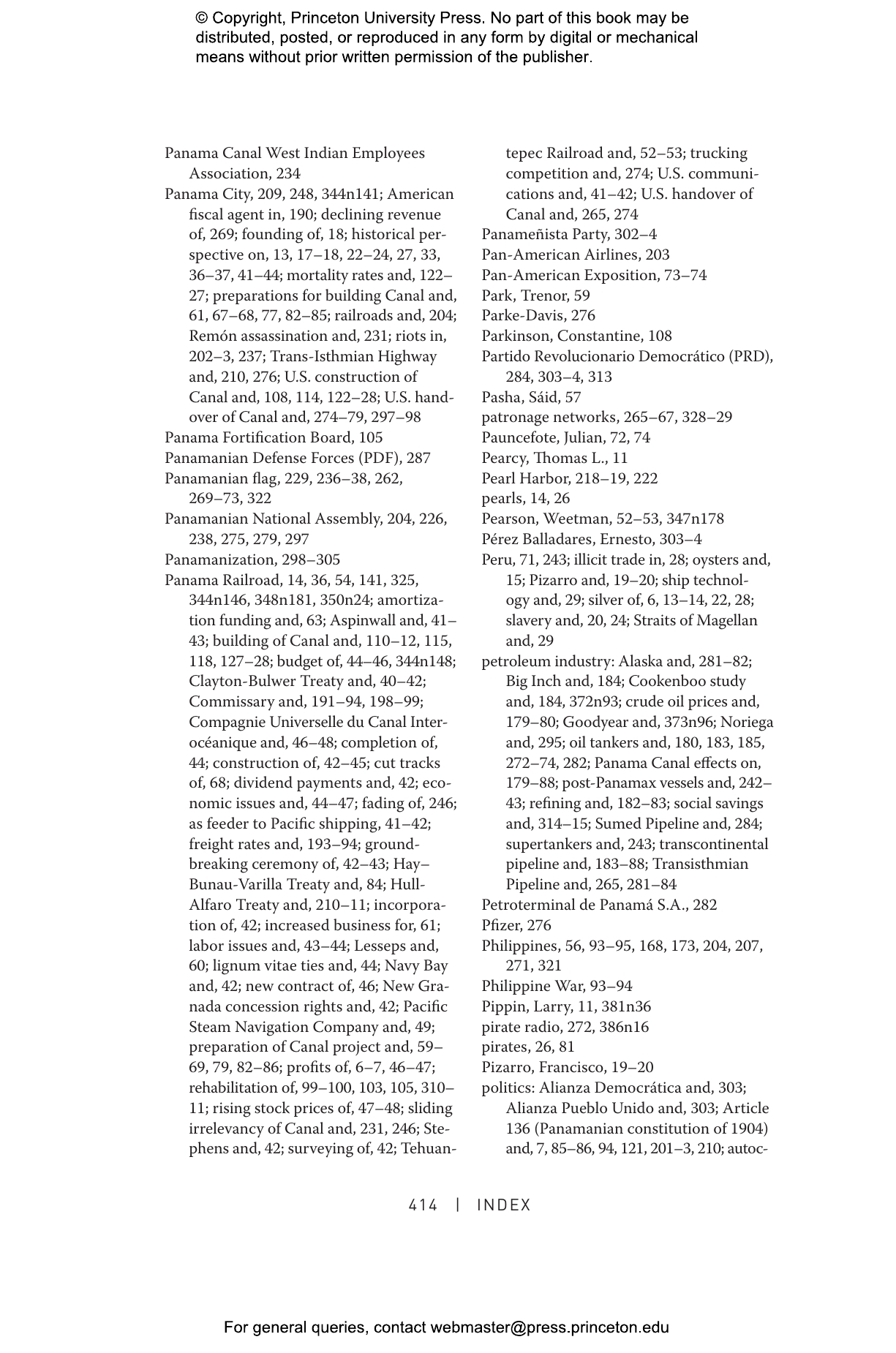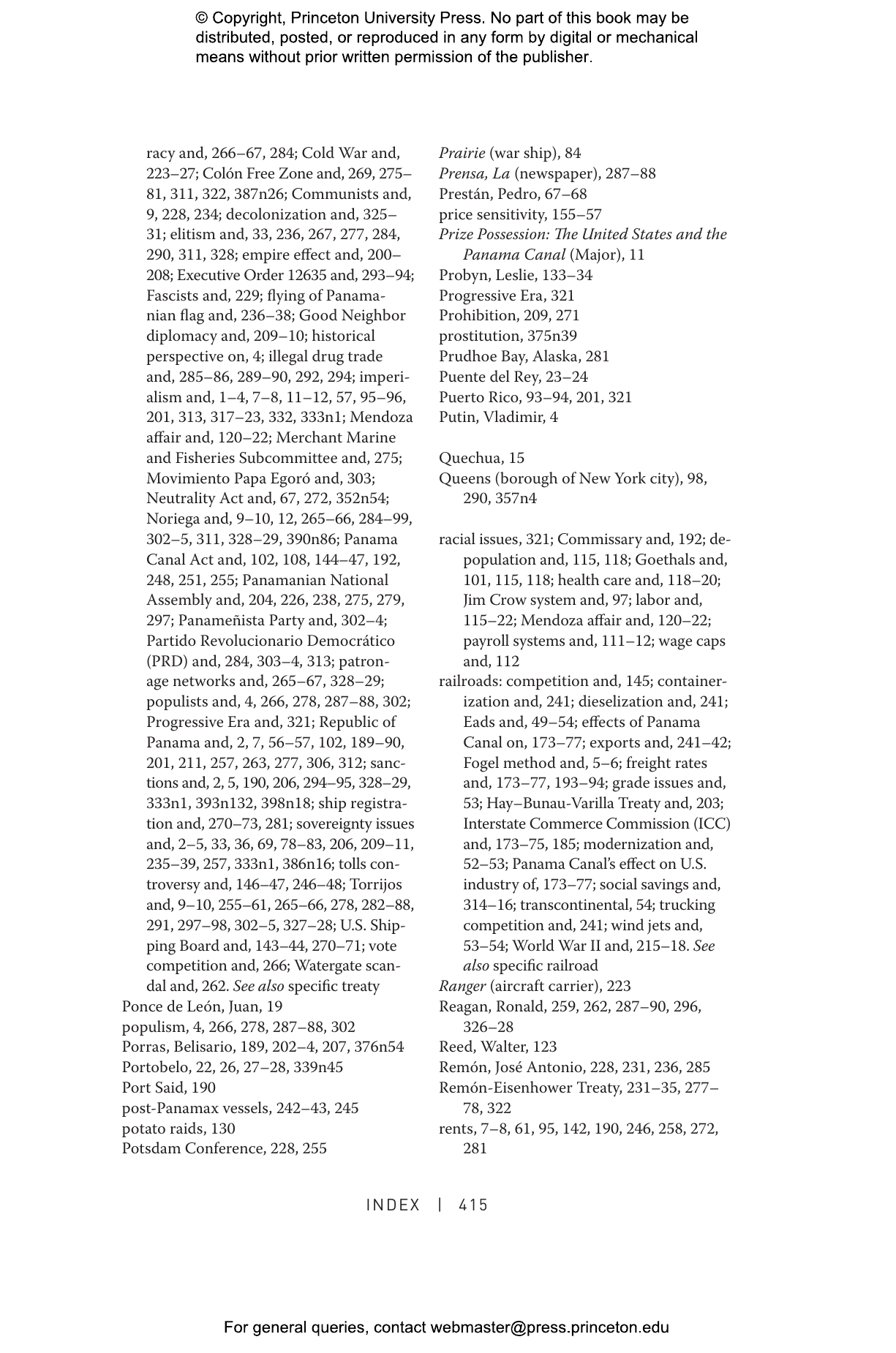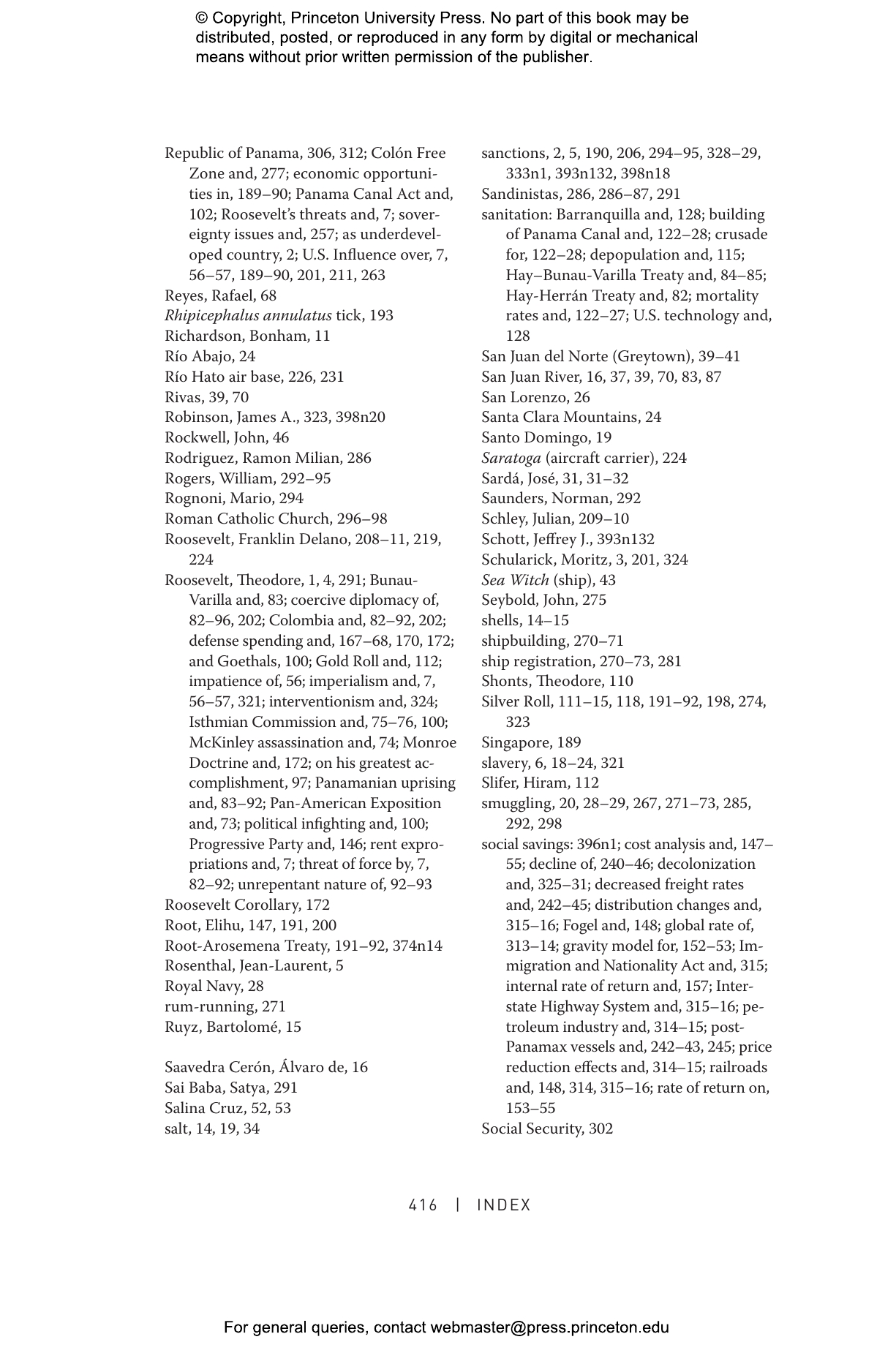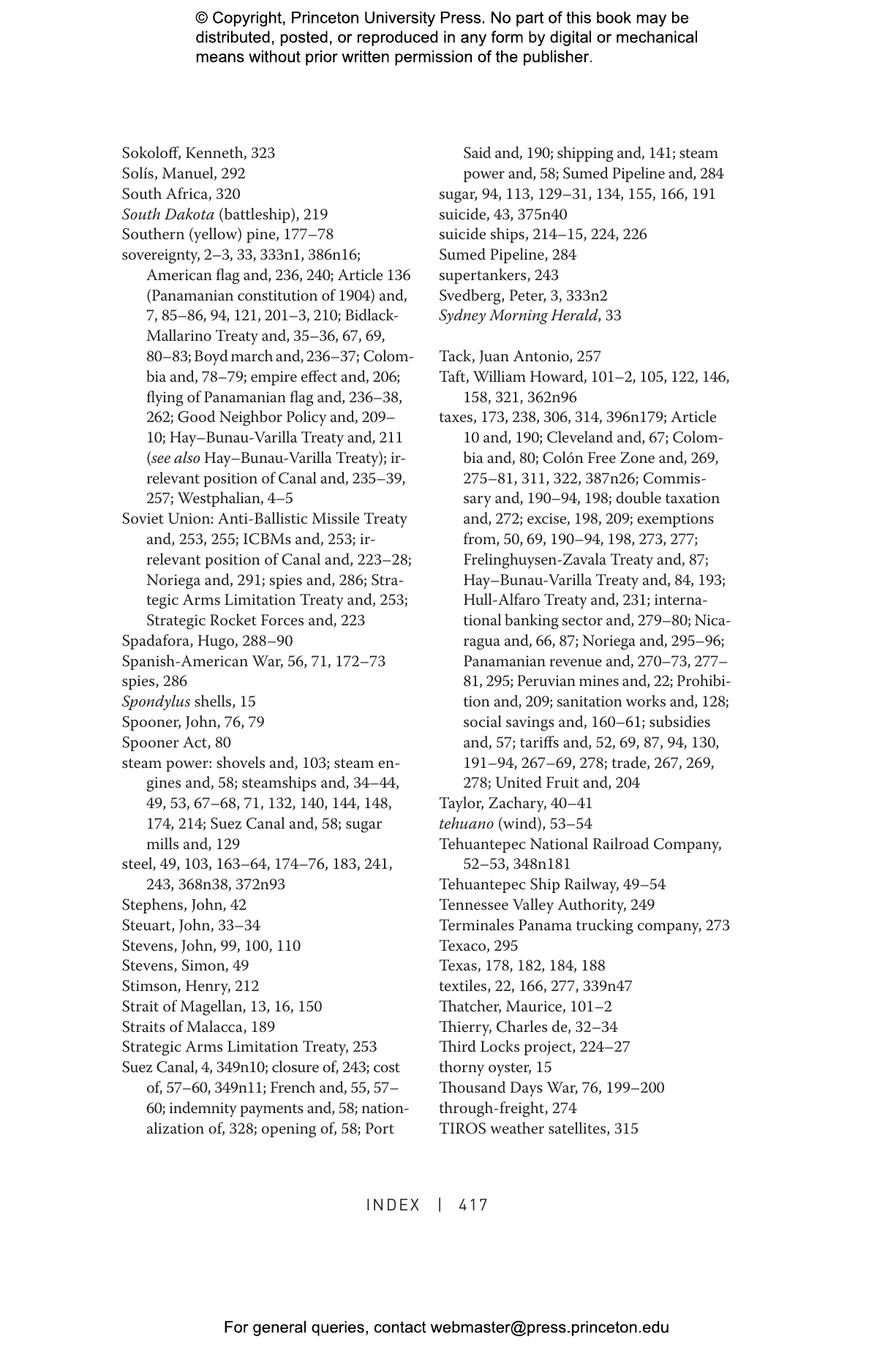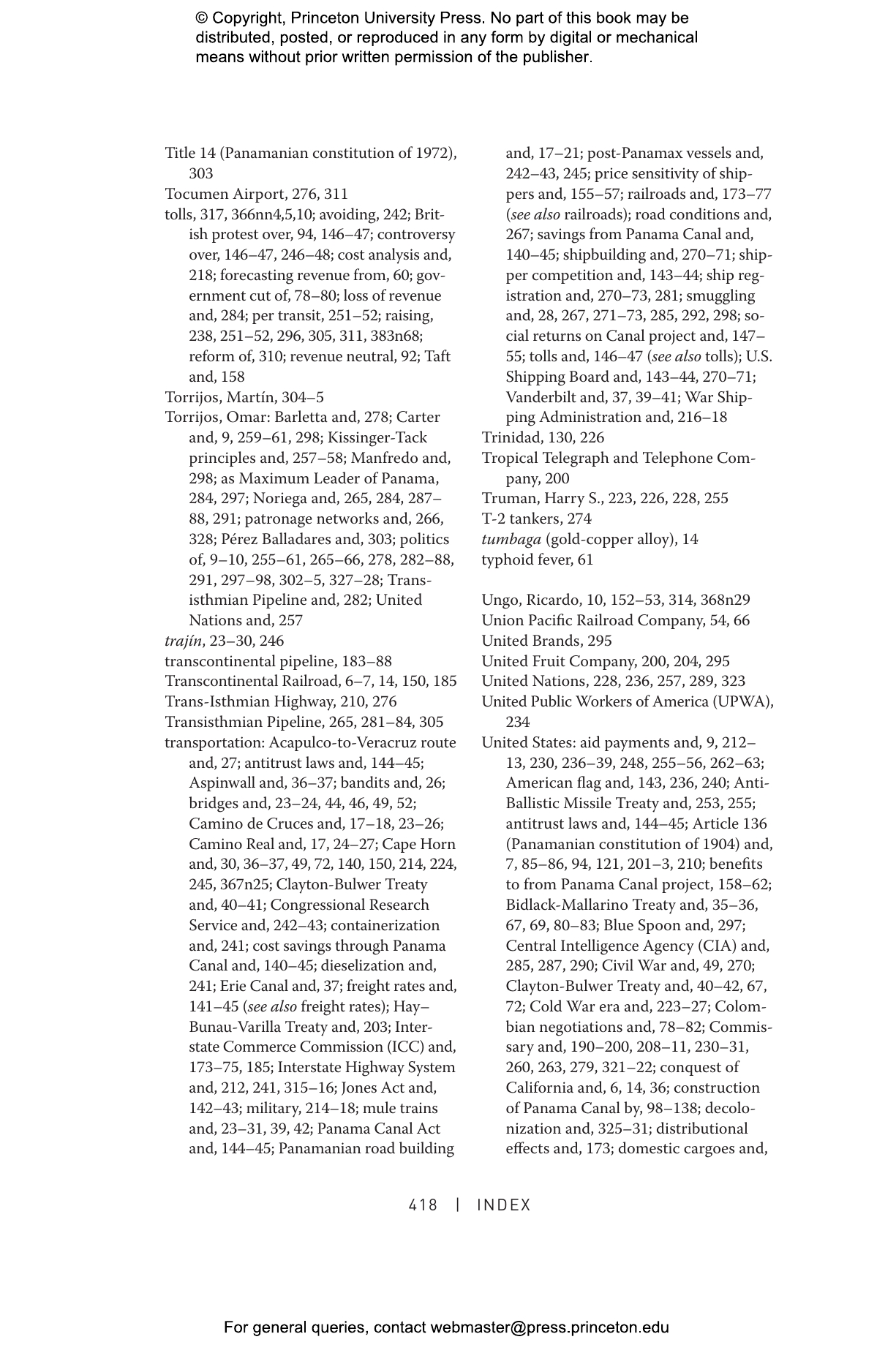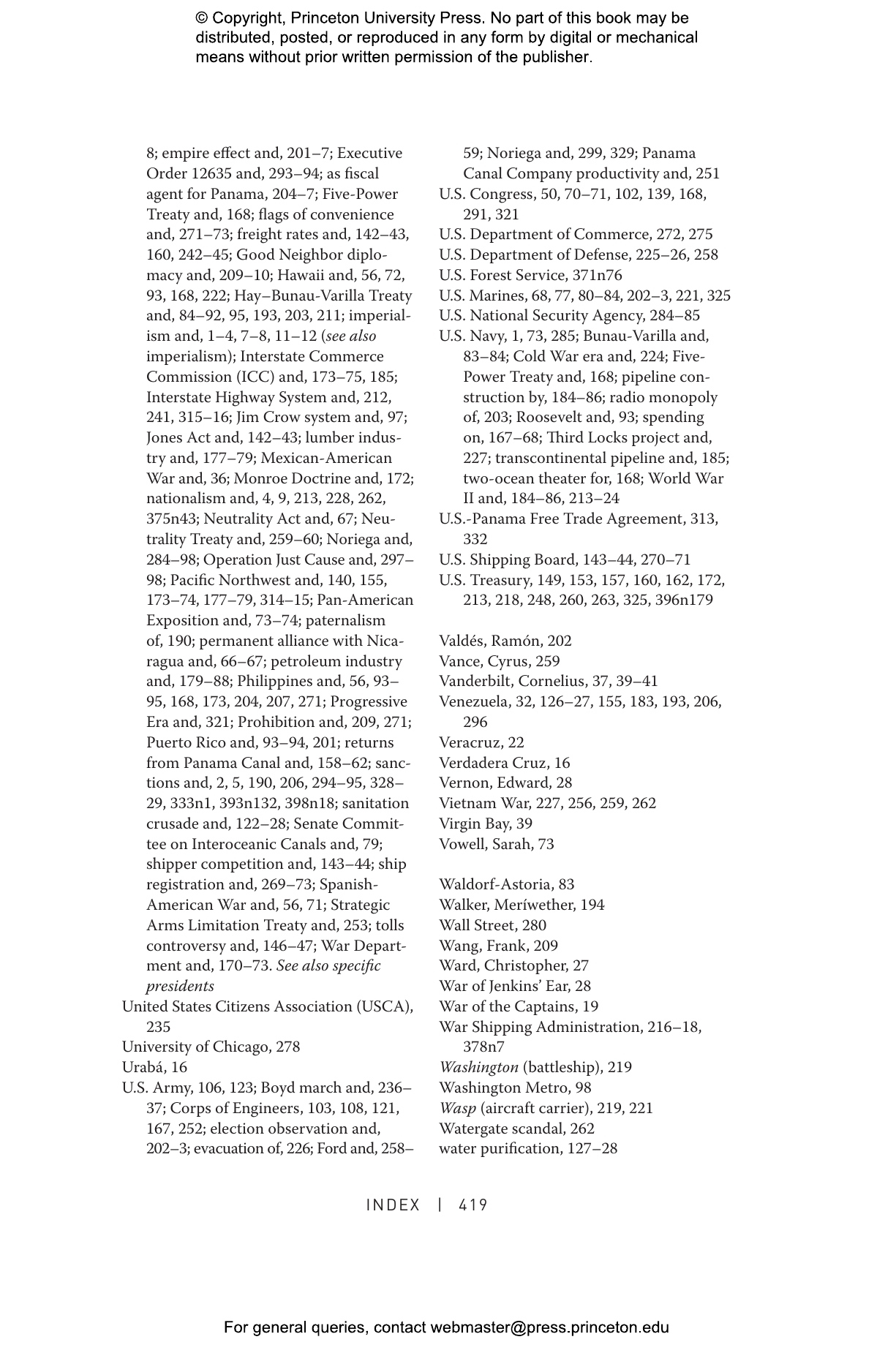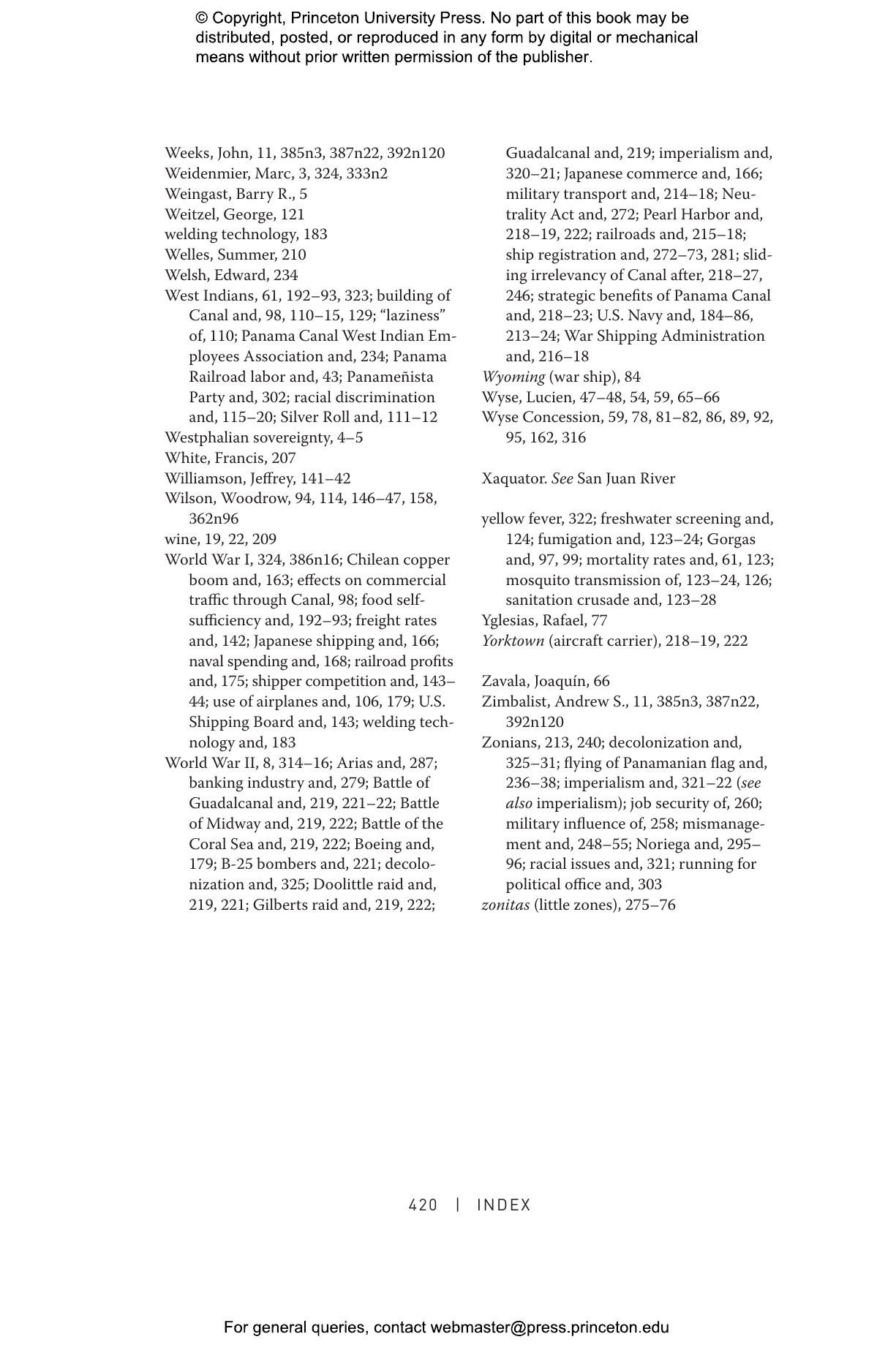On August 15, 1914, the Panama Canal officially opened for business, forever changing the face of global trade and military power, as well as the role of the United States on the world stage. The Canal’s creation is often seen as an example of U.S. triumphalism, but Noel Maurer and Carlos Yu reveal a more complex story. Examining the Canal’s influence on Panama, the United States, and the world, The Big Ditch deftly chronicles the economic and political history of the Canal, from Spain’s earliest proposals in 1529 through the final handover of the Canal to Panama on December 31, 1999, to the present day.
The authors show that the Canal produced great economic dividends for the first quarter-century following its opening, despite massive cost overruns and delays. Relying on geographical advantage and military might, the United States captured most of these benefits. By the 1970s, however, when the Carter administration negotiated the eventual turnover of the Canal back to Panama, the strategic and economic value of the Canal had disappeared. And yet, contrary to skeptics who believed it was impossible for a fledgling nation plagued by corruption to manage the Canal, when the Panamanians finally had control, they switched the Canal from a public utility to a for-profit corporation, ultimately running it better than their northern patrons.
A remarkable tale, The Big Ditch offers vital lessons about the impact of large-scale infrastructure projects, American overseas interventions on institutional development, and the ability of governments to run companies effectively.
Noel Maurer is associate professor of business administration at Harvard Business School. His books include The Power and the Money, The Politics of Property Rights, and Mexico since 1980. Carlos Yu is an economic historian and private consultant based in New York City.
"The history of the Panama Canal's construction, operation, and eventual transfer to the Panamanian government offers a fascinating window on US imperialism in the 20th century. Maurer and Yu provide a deeply researched and highly readable economic history of the canal."—Choice
"This book teaches us important lessons on the global consequences of imperial ventures with particular insights on institutional development, economic and political constraints and power."—Leticia Arroyo Abad, EH.Net
"The authors' sophisticated and persuasive analysis helps illuminate the economic history—and consequences—of the Panama Canal. This book brings new questions and answers to the study of U.S. imperialism and simultaneously demonstrates the usefulness of economic history for a field often dominated by cultural and social methodologies."—Julie Greene, Journal of American History
"The Big Ditch strikes an interesting balance in addressing both the political and economic dimensions of imperialism and the practices of empire, and fills a gap by providing a comprehensive analysis of the Panama Canal through a century of its history."—Joseph Michael Gratale, European Journal of American Studies
"Meticulously researched and brilliantly argued, The Big Ditch provides a seminal analysis of the economic motivations and consequences of American imperialism. The book is not just about the Panama Canal, but also much more broadly about the nature and legacy of Western colonialism. It will force many of us to rethink what we thought we knew."—James Robinson, coauthor of Economic Origins of Dictatorship and Democracy
"Why did the United States build the Panama Canal at tremendous cost in lives and treasure, and then give it away to the Panamanians? What exactly did we do with the Canal when we owned it? Did it make money or was it a boondoggle? Read this fascinating book and learn the answers."—Stephen Haber, Stanford University
"This landmark book offers important new insights that will significantly advance our understanding of the national and global economic consequences of the Panama Canal. It will have a profound and lasting impact on the history of U.S. imperialism in Latin America and represents a contribution to the emergent literature on the new political economy of empire."—Alan Dye, Barnard College, Columbia University
"This dynamic and entertaining book provides the first modern and quantitative interpretation of the economic and political history of the Panama Canal, one of the largest infrastructure works ever connected to the creation of a new country, the prevention of malaria and yellow fever, the reduction of transport prices, the promotion of international trade, and the redistribution of wealth in the United States."—Xavier Duran, London School of Economics and Political Science and Northwestern University
